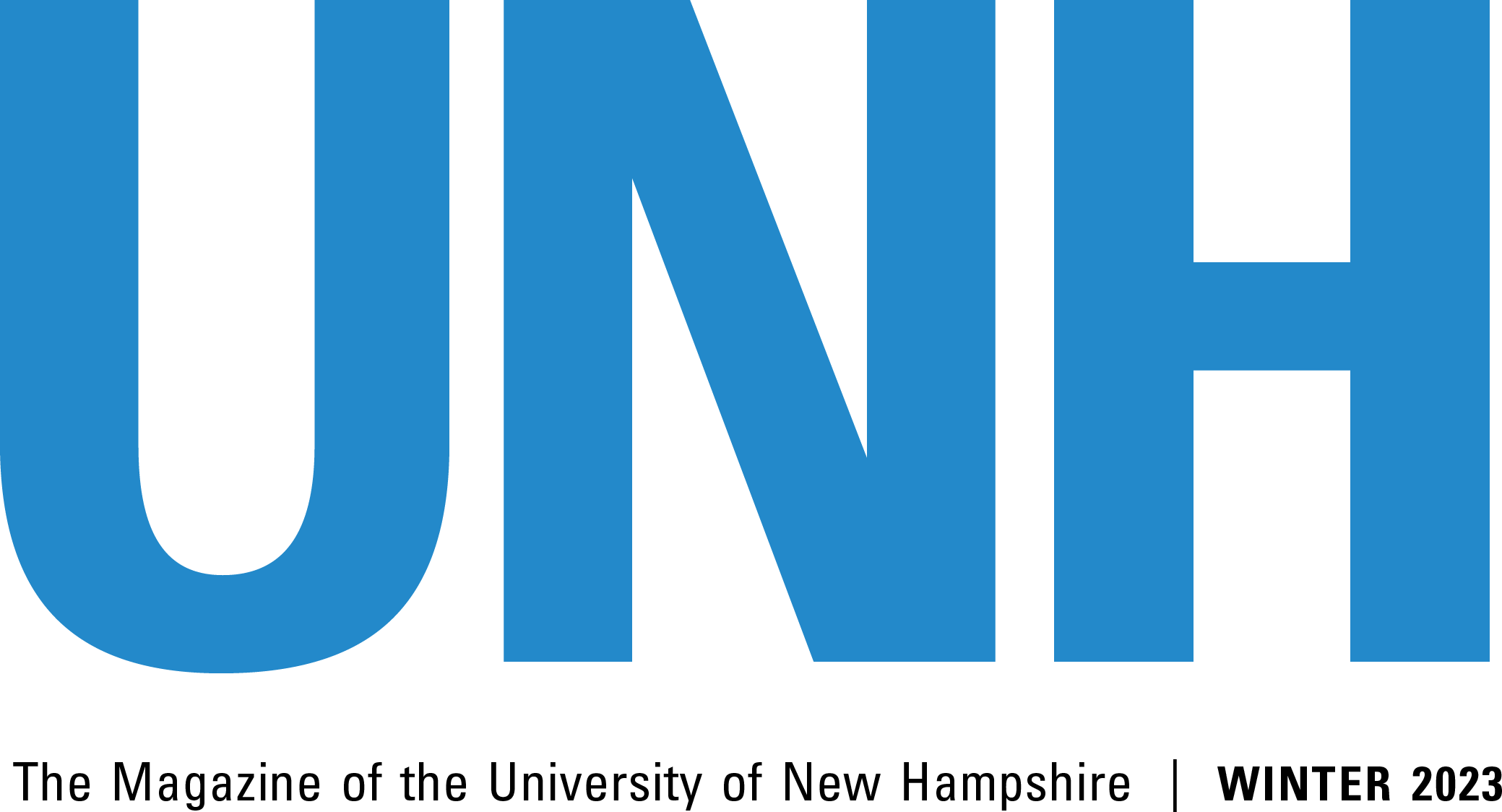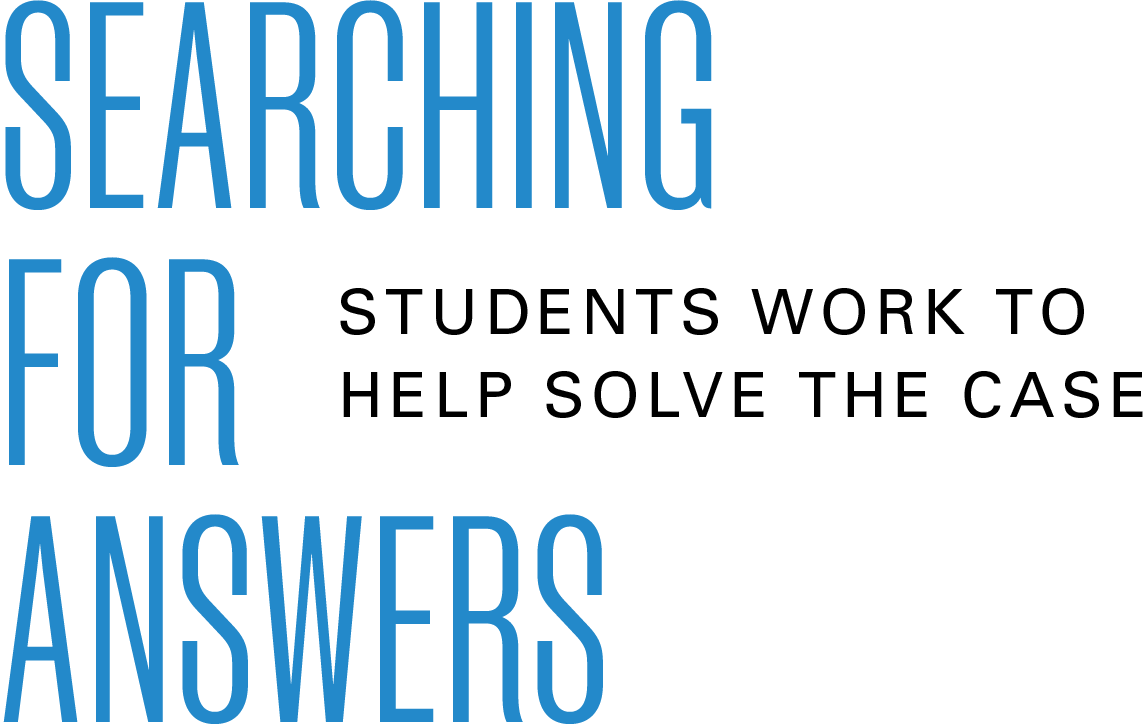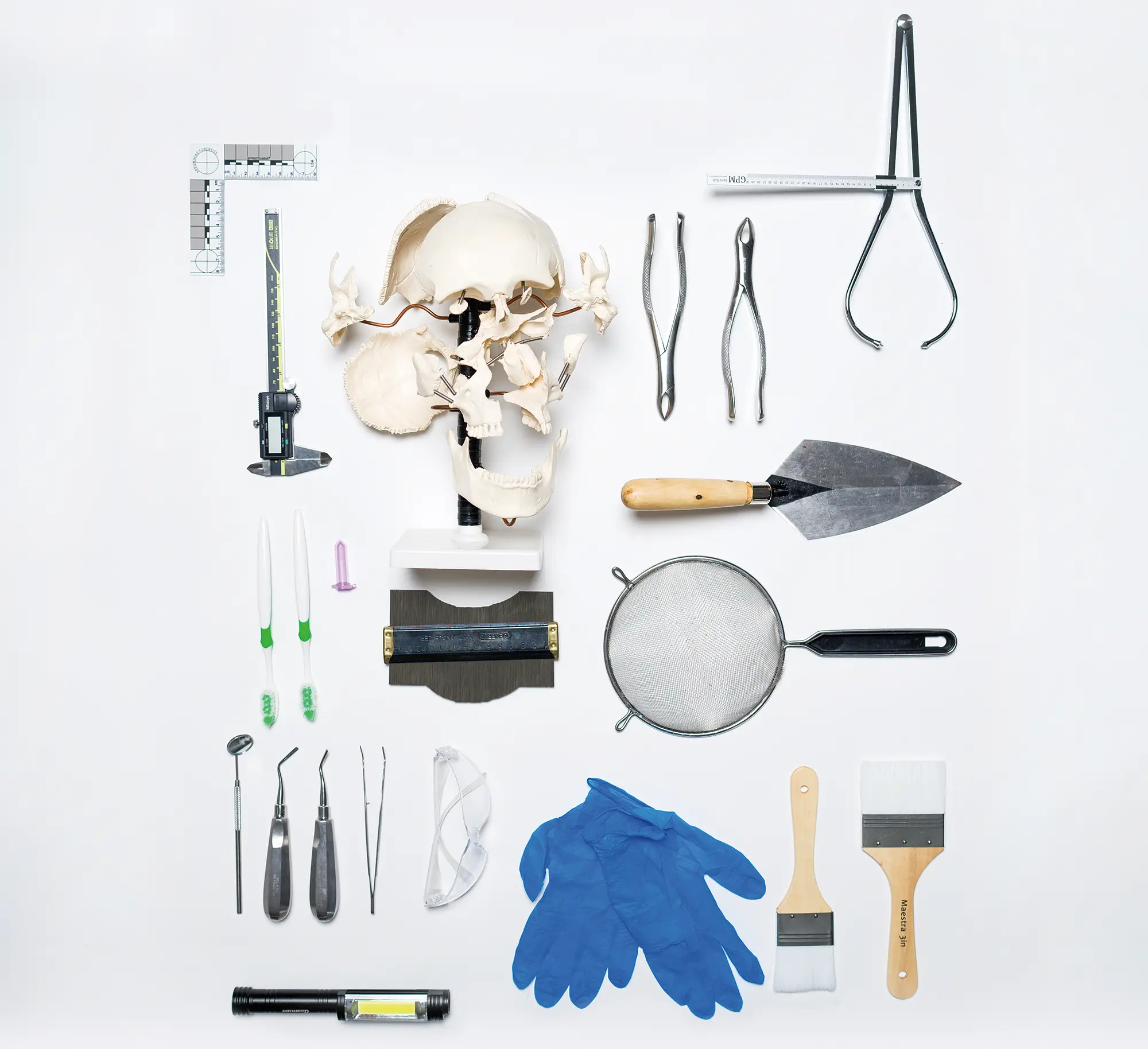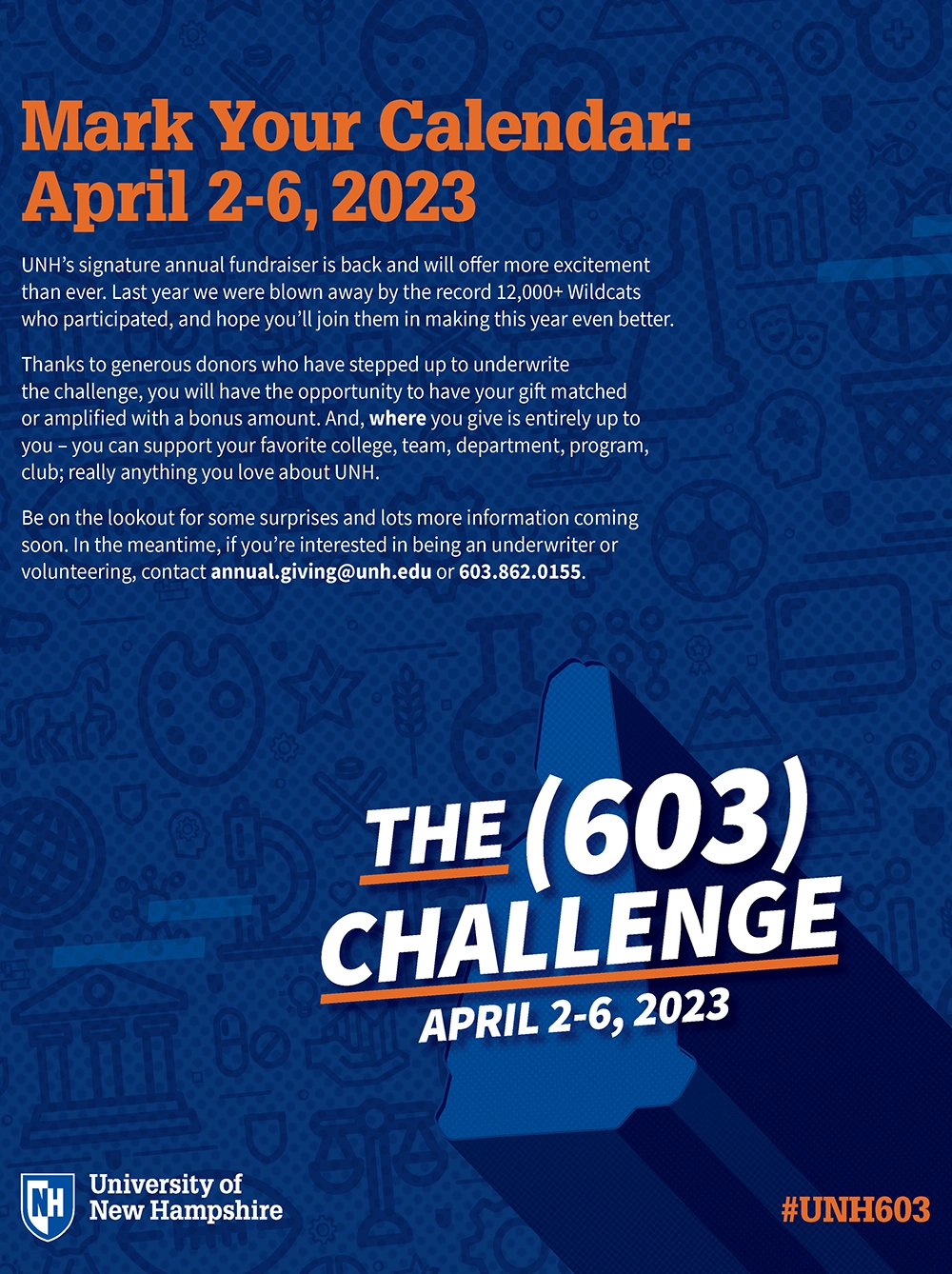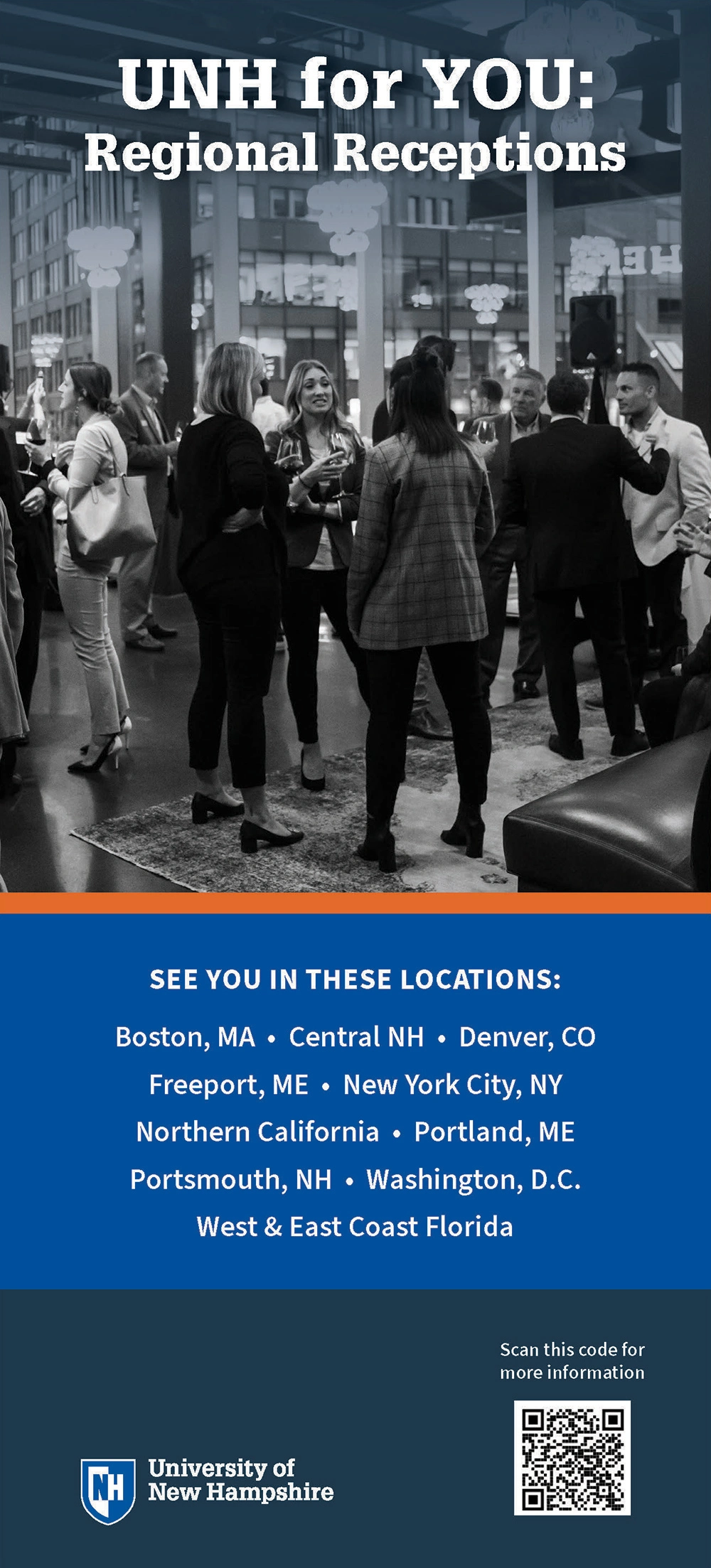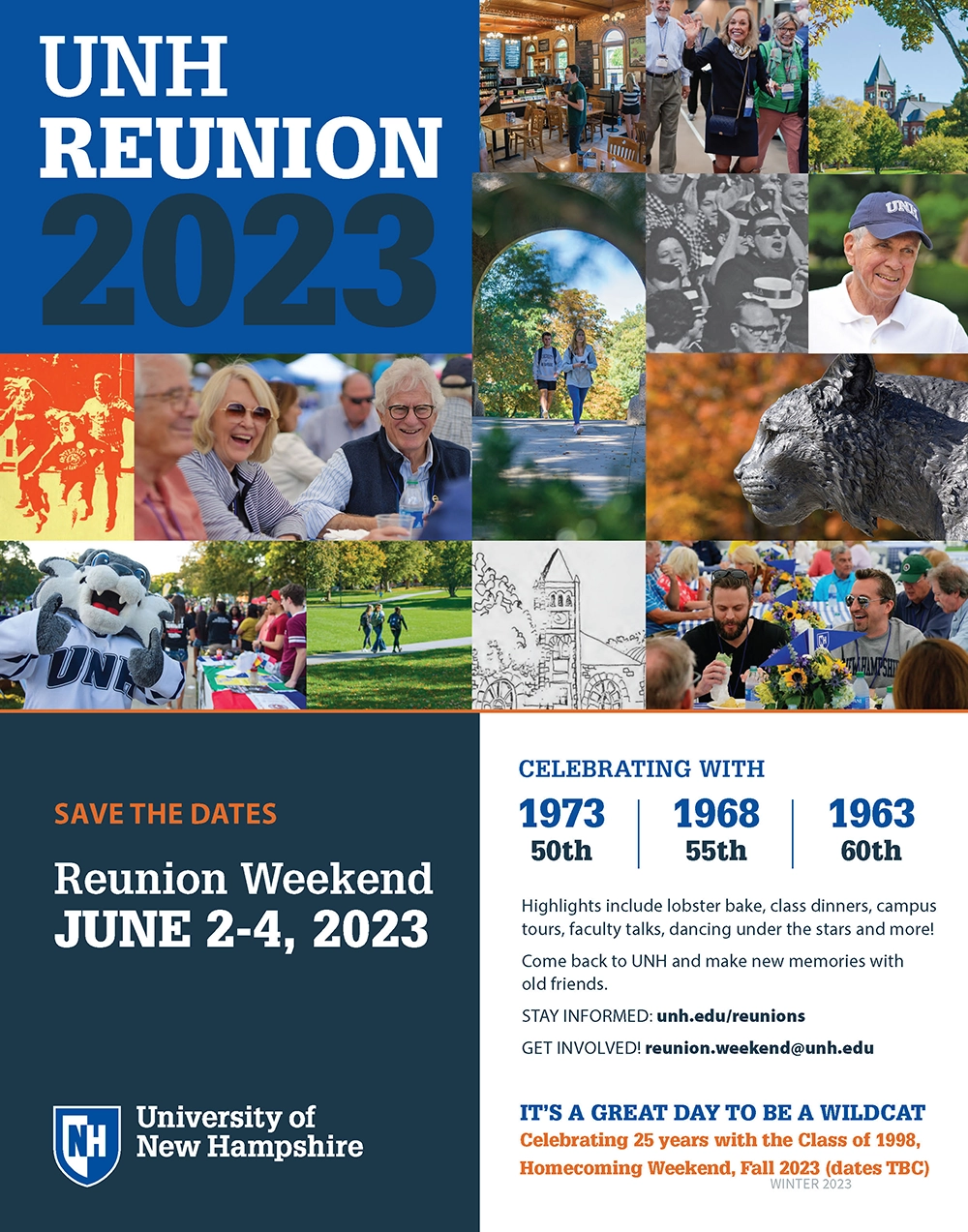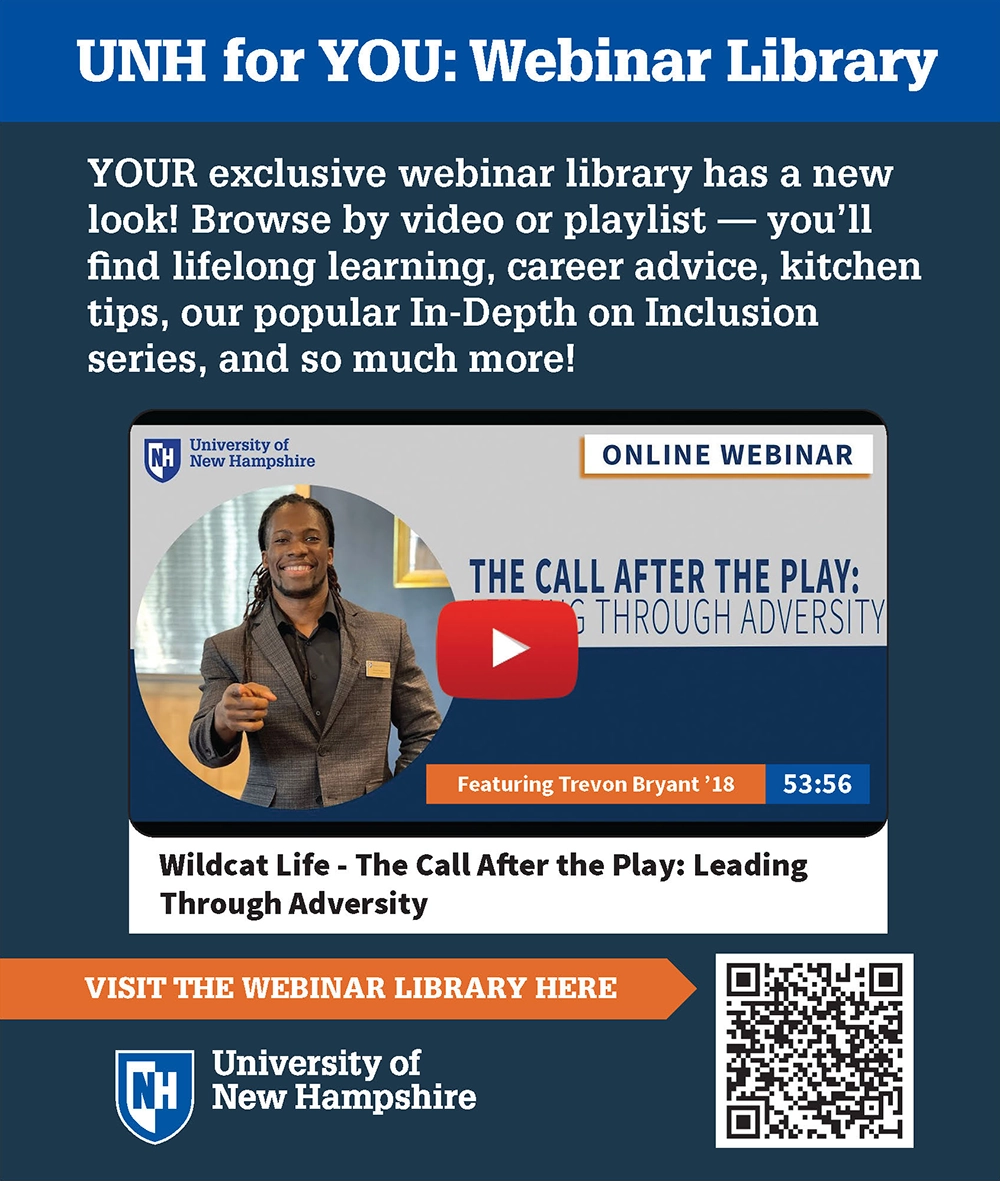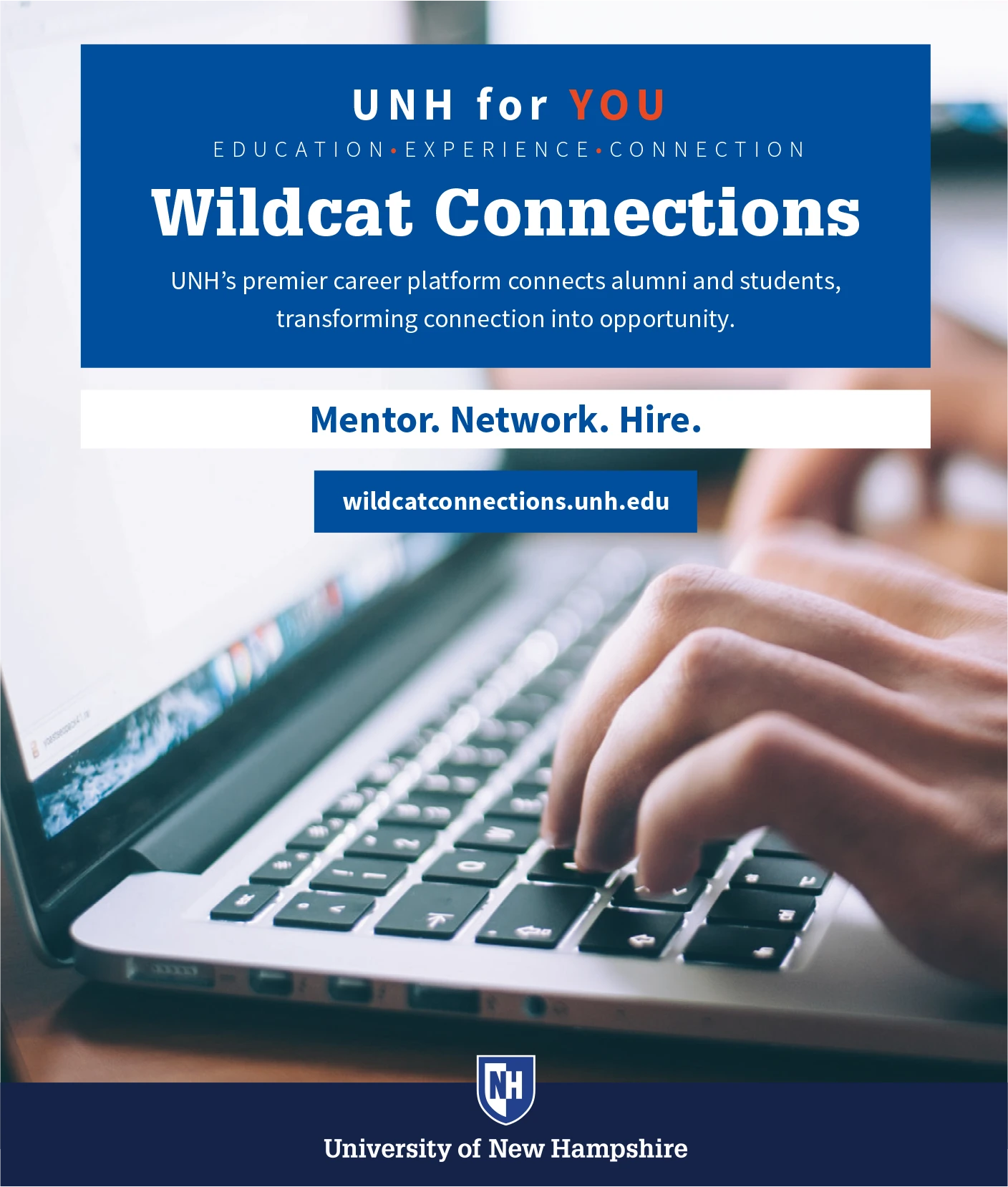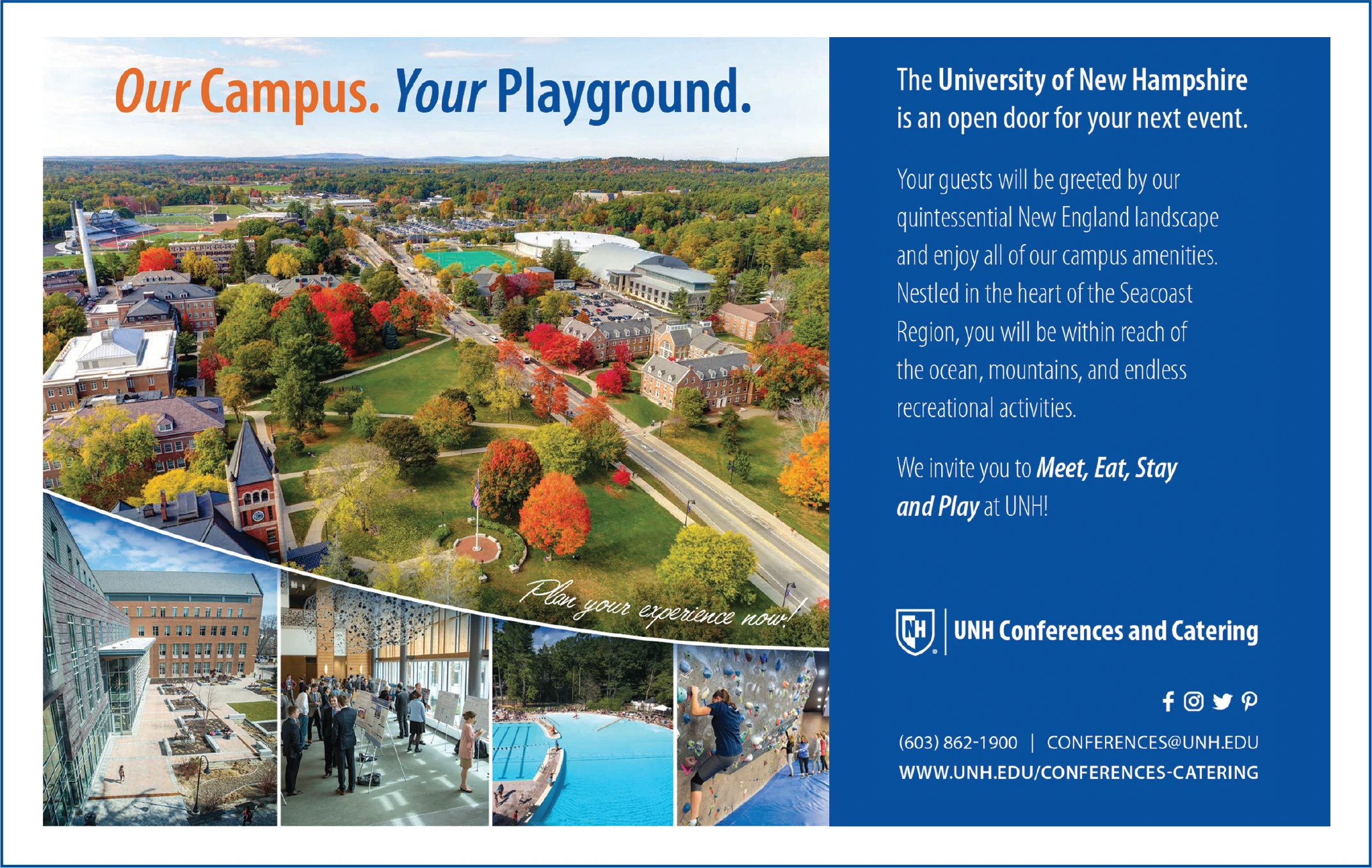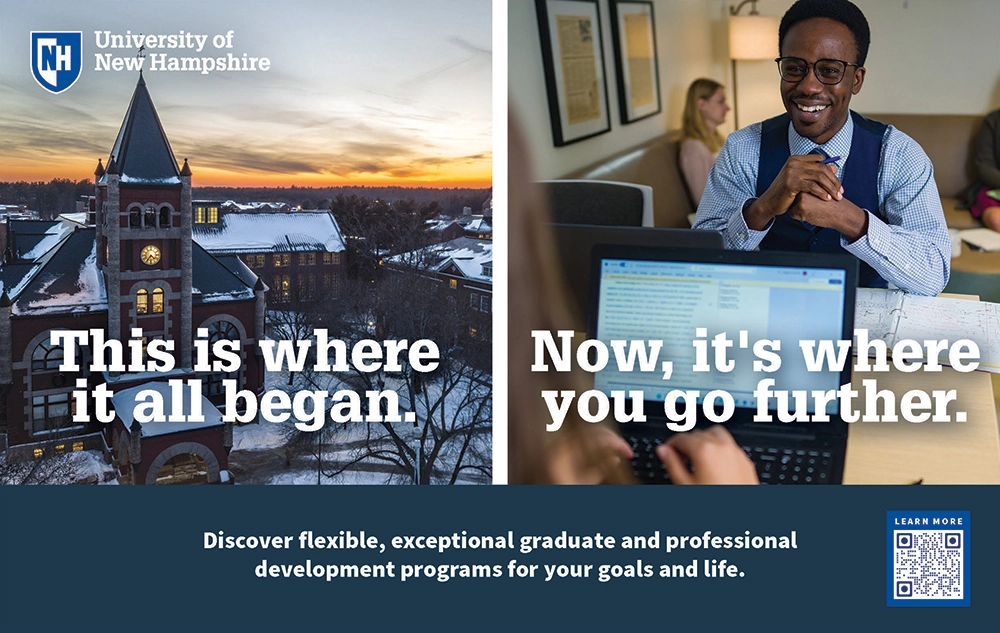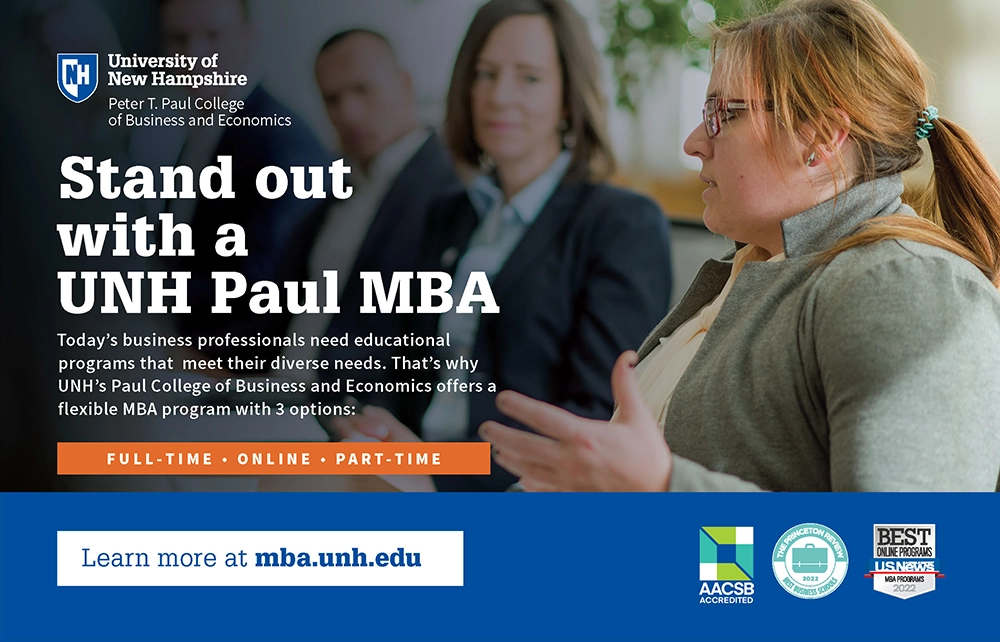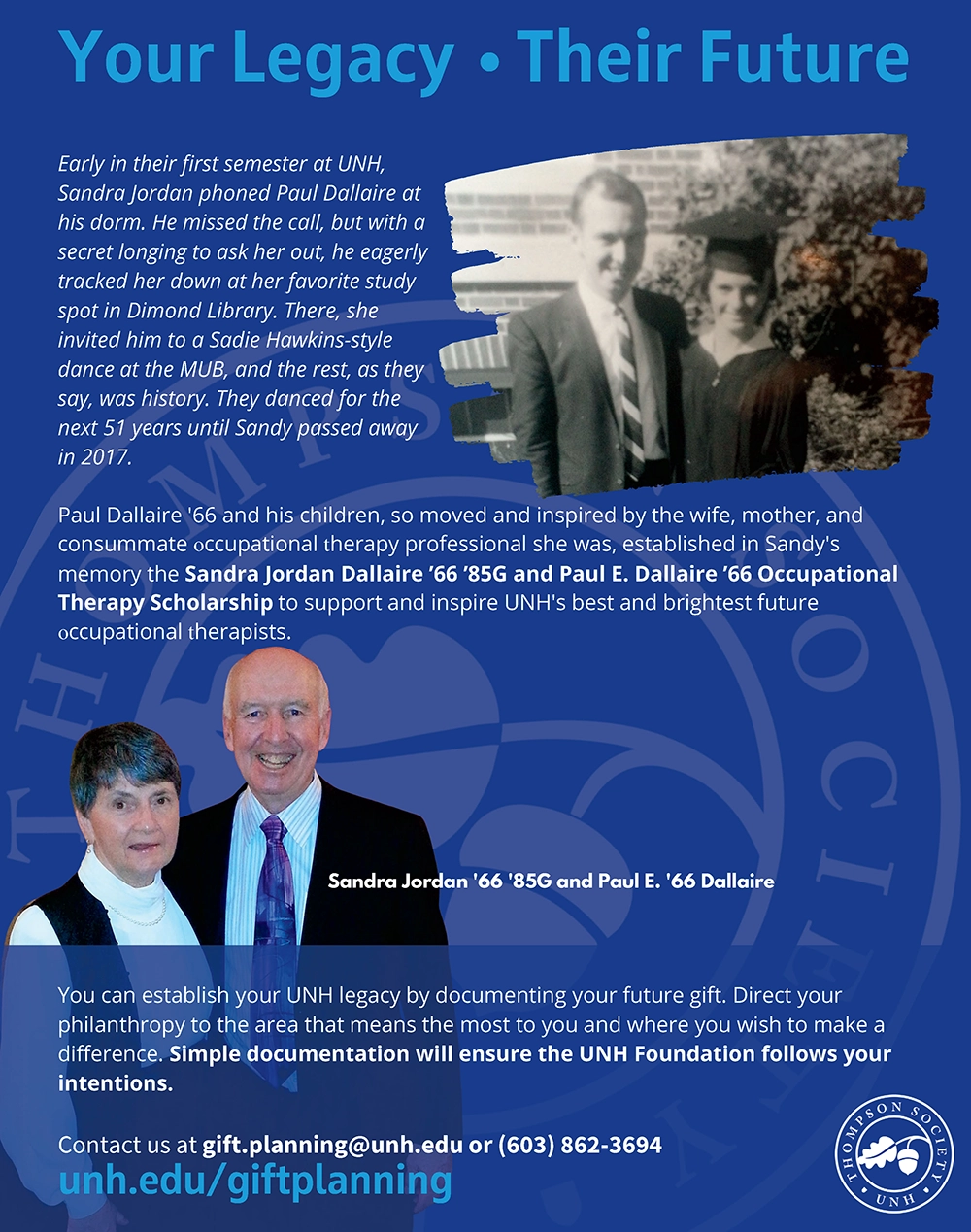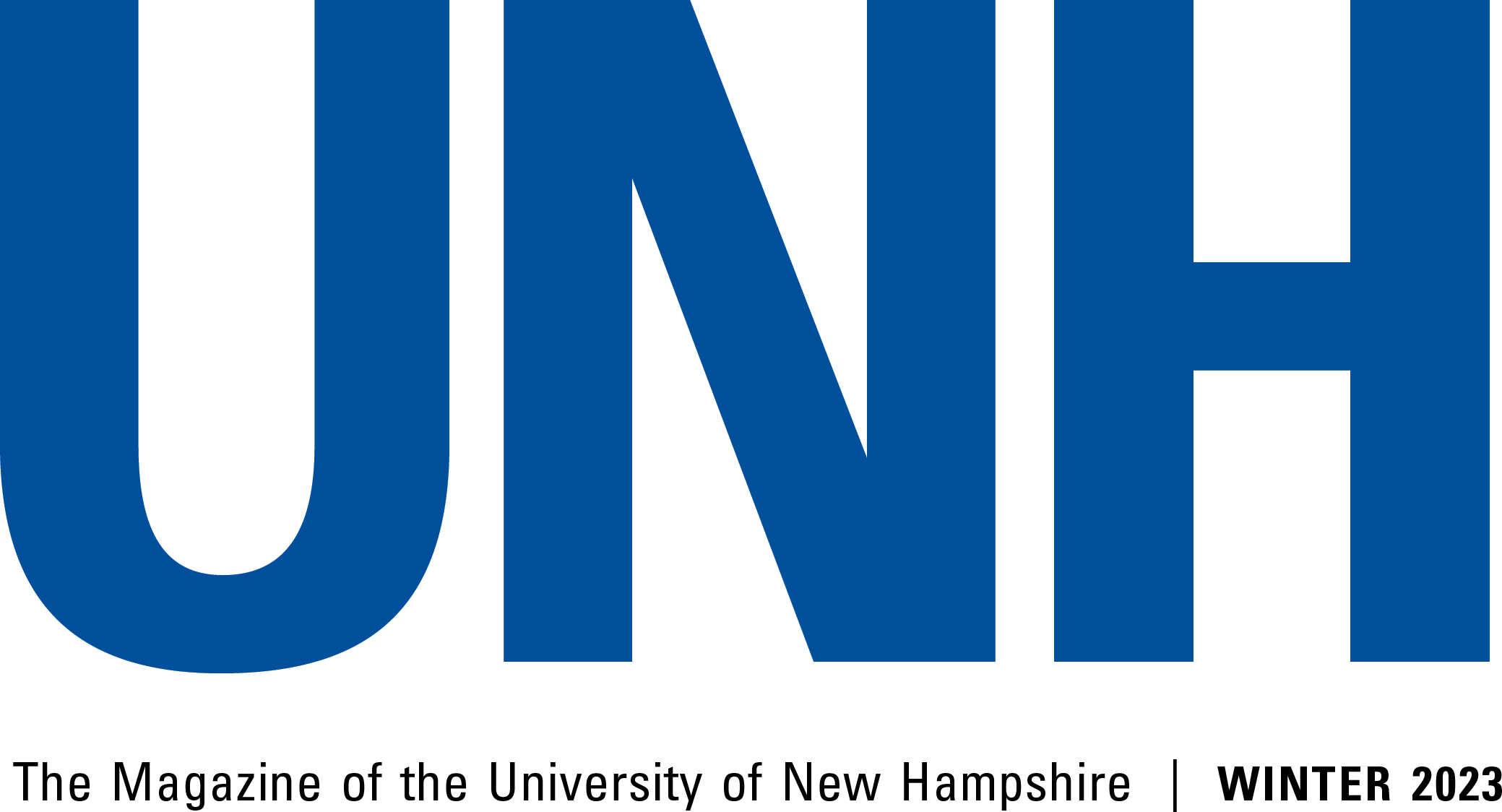
Features
Samuel Comeau ’23, a marine, estuarine and freshwater biology major, works on his shallow water baitfish assemblages project in Great Bay as part of his Hamel Center for Undergraduate Research-supported study.

Departments
President’s Letter: James W. Dean Jr.
’Round the Granite State
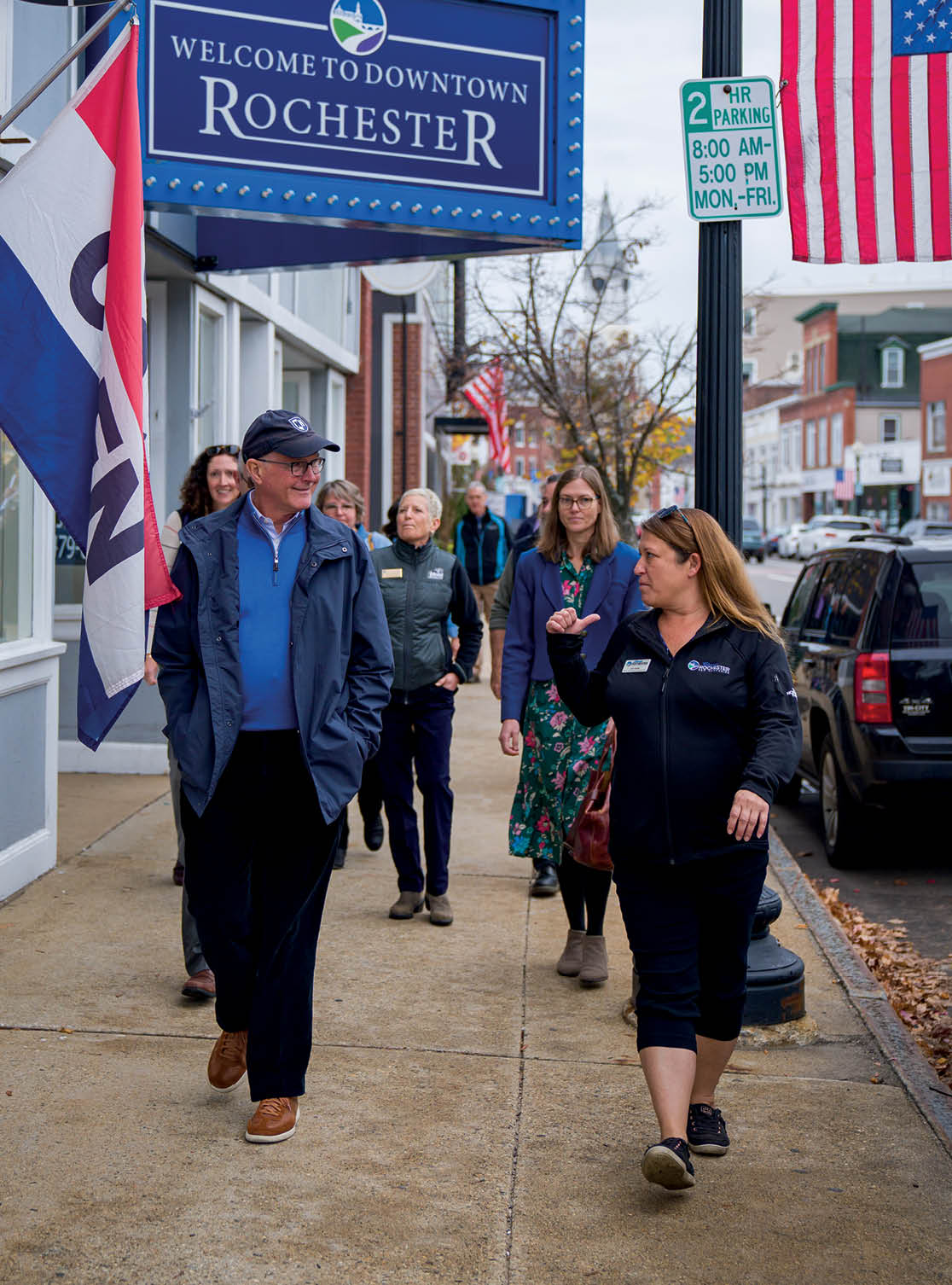
PEOPLE THE WORLD OVER KNOW New Hampshire for its beautiful mountains, lakes and forests, charming small towns and vibrant cities and a robust economy, which consistently place it at the top of national rankings for quality of life. So, it’s not too surprising that 12.8 million visitors came to New Hampshire in 2021 — more than nine times our state’s population — and spent more than $5.5 billion.
But on a two-day tour of the state with other UNH leaders last fall, what stood out most for me is how resourceful, innovative and hard-working Granite Staters are — not only at solving the biggest challenges in their regions, but also at creating new opportunities that are improving local lives and economies.
In early November, we set out on a 300-mile road trip, with nine stops in eight communities, from the Seacoast and Lakes Region to the North Country and central New Hampshire. Along the way, we met more than 100 Granite Staters from all walks of life and an almost dizzying array of businesses, state and federal agencies and community organizations.
Our trip reflected UNH’s focus on “Embrace New Hampshire” — one of four strategic priorities that drive our major initiatives across the university. While our founding mission has always been rooted in the state of New Hampshire, this commits us to redoubling our efforts to make everyone in New Hampshire incredibly proud of their flagship public university. Funding for the trip came from former USNH trustee John Small ’76, who says his passion is to have residents here “better understand just what a gem we have in UNH.”
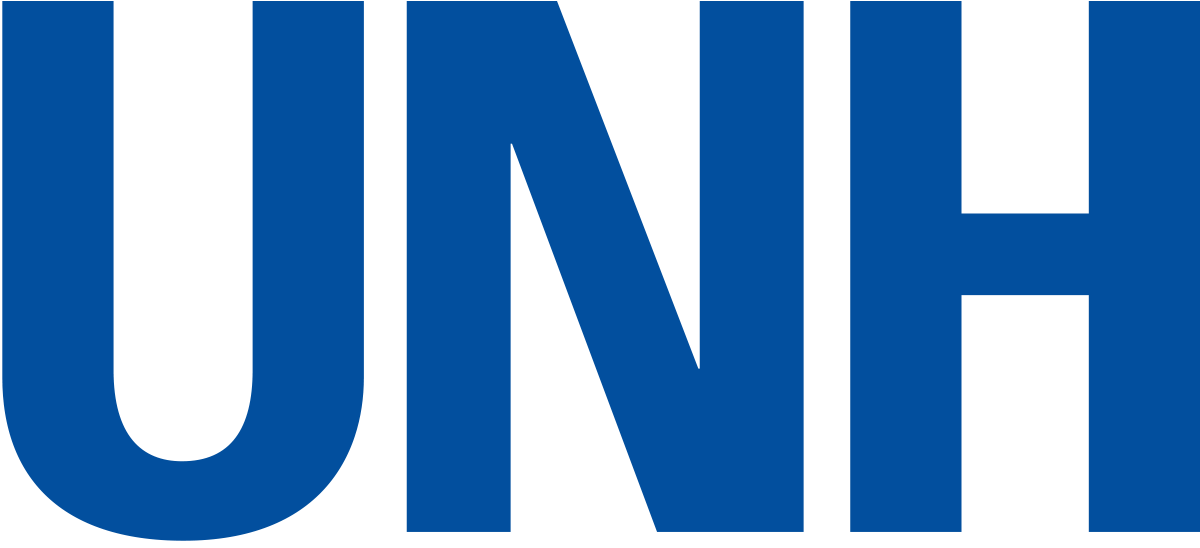
Editor-in-Chief
Michelle Morrissey ’97
Writing
Larry Clow ’12G
Jim Graham
Karen Hammond ’64
Crystal Kent ’78
Michelle Morrissey ’97
Steve Scott ’82
Photography
Deb Cram
Jeremy Gasowski
Perry Smith
Copy Editing
Joni Aveni
Monica Hamilton
Content Contributors
Susan Dumais
Allan Lessels
Erika Mantz
Steffen Poltak
Robbin Ray
Keith Testa
Rhi Watkins ’22
China Wong ’18
Designer
Lilly Pereira / aldeia.design
UNH Magazine
c/o Michelle Morrissey ’97
Elliott Alumni Center
9 Edgewood Road,
Durham, NH 03824
Publication Board of Directors
James W. Dean Jr.
President, University of New Hampshire
Debbie Dutton
Vice President, Advancement
Susan Entz ’08G
Associate Vice President,
Alumni Association
Bridget Stewart ’96
President, UNH Alumni Association
On the Cover: The tools of the trade are many in the FAIR Lab at UNH, where students are working on real-world cold cases and helping to identify human remains. See story page 30.
COVER PHOTO BY Jeremy Gasowski
© 2023, University of New Hampshire. Readers may send feedback, news items and email address changes to alumni.editor@unh.edu.
“Hey, Martha!”

TODAY I’m bringing you some highlights of what you’ll find in this magazine, which, in itself is one big highlight of all the amazing things happening at the University of New Hampshire. Since I have taken over as editorial director and editor-in-chief, it has been a challenge to fit everything that deserves to be in the magazine in here, so sometimes being editor means being chief curator of the good news of UNH, too!
One caveat: I share these gems with no slight to the rest of the stories here. Something about this edition makes me think of my newspaper days, when we’d talk about a real “Hey, Martha!” story — a story that was so captivating or interesting that it would make someone shout out to a person across the room (the proverbial Martha) that they just had to read it. As I pulled this collection of content together and got to know some of the stories more deeply, I found myself having a “Hey, Martha” reaction to much of what I learned about the people who make up our vast and varied UNH community — lots of stories I’d shout across a room about.
Current
See story, page 13.
Discovery in an undersea barrel
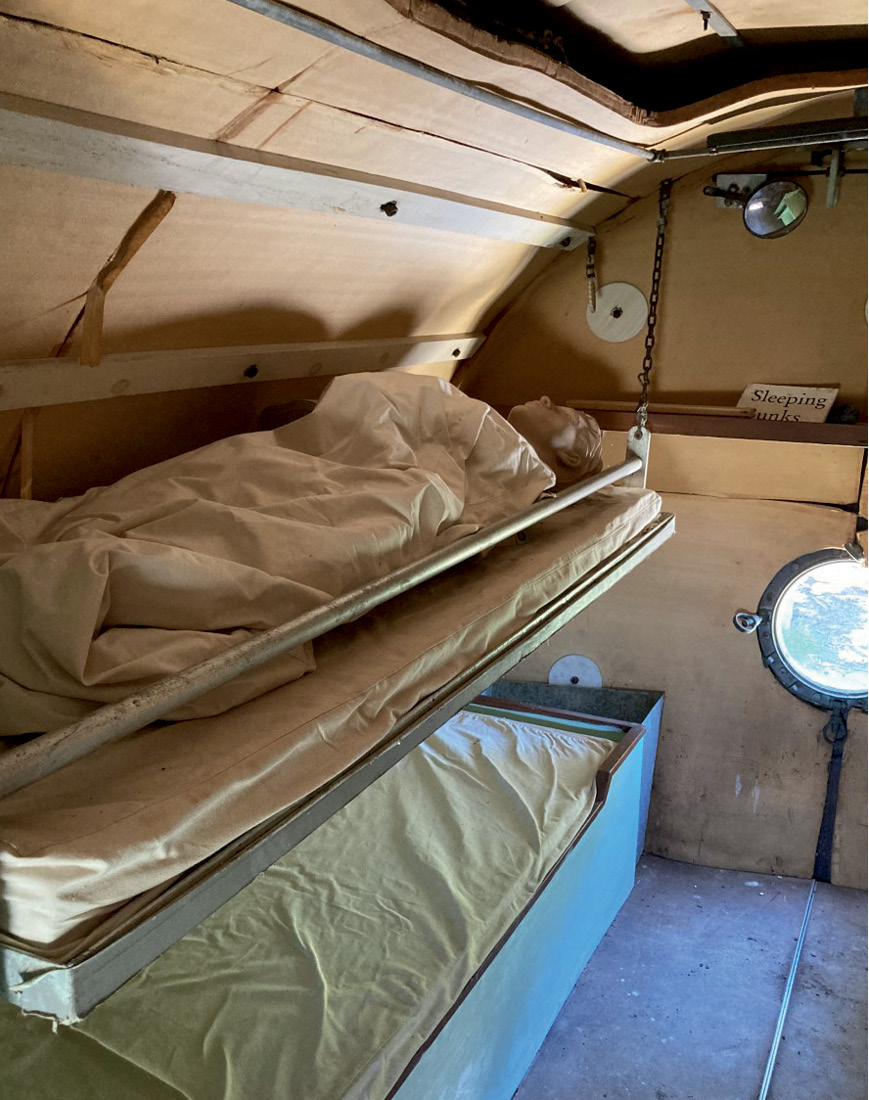
“We had no idea what we were in for when we signed up,” Glennon says, laughing.
In April 1971, Glennon and Sawtelle were tasked with monitoring how the Dungeness crab, a West Coast species, interacted with native species like lobster and wolffish in the Gulf of Maine. But the star of the show was EDALHAB, a portable underwater habitat that was constructed, in the words of former New Hampshire Congressman Louis C. Wyman, “by means of Yankee thrift and ingenuity.” A half-century later, it’s hard to believe that an 8-by-12 cramped metal tube stuffed with a set of bunk beds, two folding chairs and three exhausted students kicked off a marine science revolution.
“We were flying by the seat of our pants,” Sawtelle says. “But it had a big impact and it really put UNH on the map.”
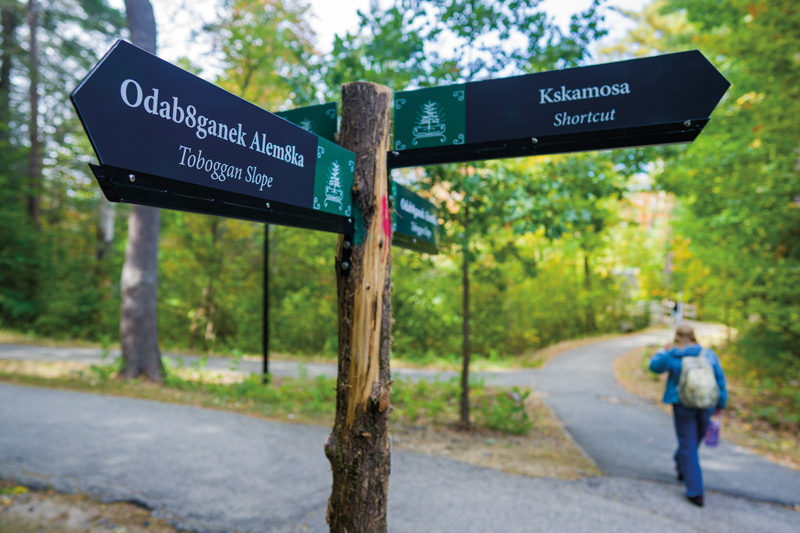
Right-of-way
The trails were selected for the project because they feature several significant landscape features that are important to the Abenaki people, past and present — waterways are revered in tribal cultures, so the brook was a natural draw, as were the surrounding wetlands (referred to as medicine gardens in Abenaki culture).
“Naming is such an important part of places at UNH. So many buildings and streets and even benches have been named after people. We thought why not bring some recognition to the original inhabitants of this landscape and honor them … as stewards of the land,” said Alexandra Martin, faculty fellow in anthropology, coordinator of UNH’s Native American and Indigenous studies minor and a member of the Indigenous New Hampshire Collaborative Collective.
Learn more about the signage and the meaning behind the new names:
cola.unh.edu/center-humanities/abenaki
Robots as caregivers?
If it sounds cold or uncaring to consider a robot being part of a caregiving team, it’s anything but. Says Arthanat: “The ultimate goal of this research is to help support caregivers while keeping their family member healthy and active at home.” The idea is that socially assistive robots could track a person’s physical activity and vital signs, monitor their medication intake to remind them if they’ve missed a dose and notify caregivers if something goes awry.
Watch a video showing how the professors say it could work: unh.me/shsar
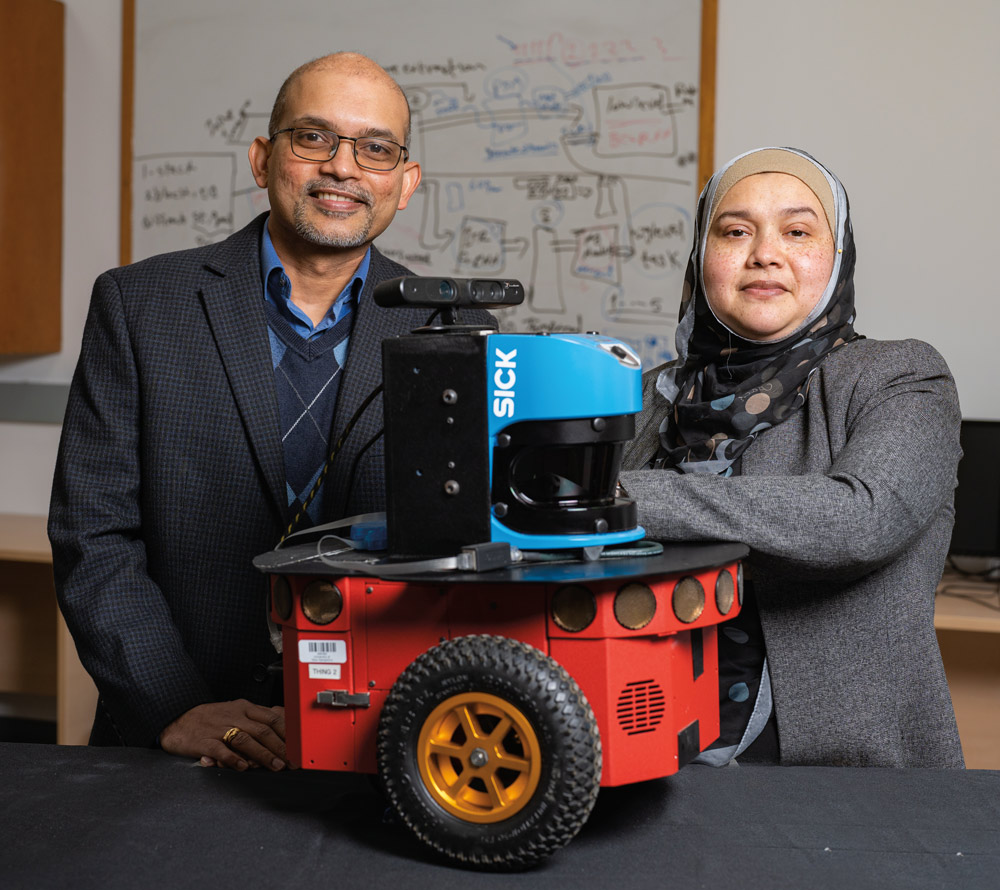
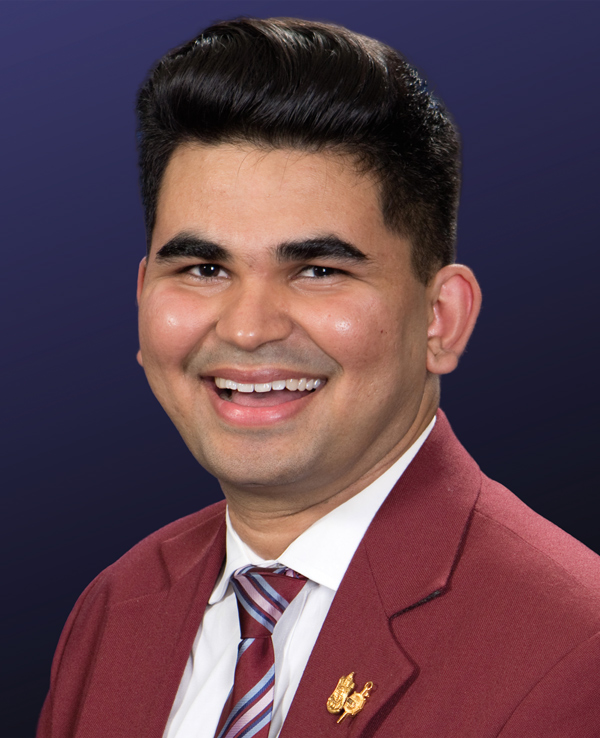
Yashwant Prakash Vyas
We are in the process of re-envisioning and strengthening the scope of work for the Beauregard Center. Our goal is to ensure that the center thrives in the areas of student support and development, retention and success initiatives, diversity education and development, programming and engagement, and community engagement.
What are some of our biggest challenges at UNH?
I do not see challenges — I envision tremendous potential in every direction. This potential for growth and positive change was part of my decision to accept the job and join the UNH community.
With all of your experience, what’s something you wish more people knew about this type of work? Two things. One, fostering a climate of equity and inclusion, cultivating a sense of belonging and supporting student success is everyone’s responsibility; this work cannot happen in isolation. Two, growth and positive change require resources. Many members of the greater UNH community have already stepped up to show their support; I hope to share more of our story to encourage more of that philanthropy to support positive change.

Director, UNH’s Aulbani J. Beauregard Center for Equity, Justice, and Freedom
Came to UNH from the University of Mississippi, where he was the inaugural diversity education and strategic initiatives director; held similar gigs at University of Iowa and Texas A&M
Inspired to work in equity in education by his own experience growing up in rural India
Bachelor’s, master’s degrees in public administration and two graduate certificates from Texas A&M; graduate certificate from Penn State
OVERHEARD
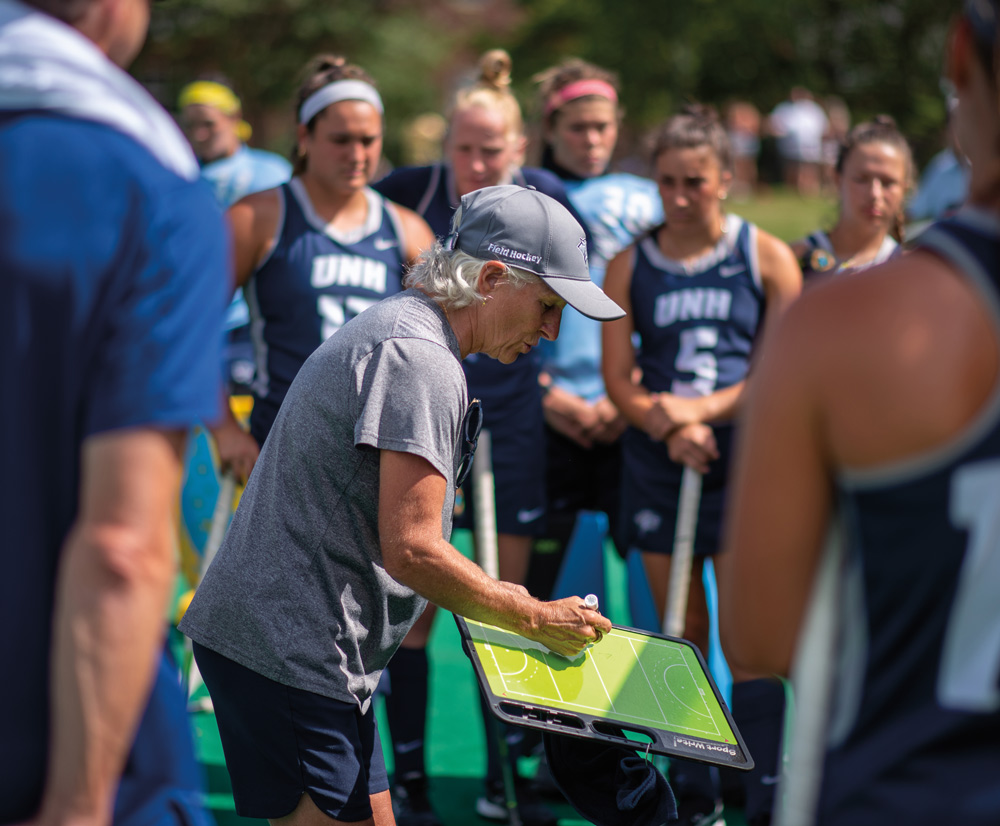
300 Wins
Coaching today: “The athletes are different yet they aren’t different all at the same time than they were 30 years ago; they love the camaraderie and winning just as much today as when I started. They now live in a much faster, ever-changing environment — it’s a world of immediate everything, so coaching and training sessions have to be more engaging, shorter and faster-paced.”
Advice for future coaches: “Coaching is the greatest job in the world, but be prepared for an emotional rollercoaster every day. Embrace the challenges of working with kids or young adults and love what you are doing. Keep it all in perspective. Enjoy the sport and competition, which is something I think I do a better job at now — enjoying each season, each year and each team.”
Remember When
On April 17, Richard Linnehan ’80 begins a 16-day spaceflight aboard Space Shuttle Columbia’s STS-90 Neurolab mission. He and six crewmates were both experimental subjects and performers of 26 different life science experiments focused on the effects of microgravity on central and peripheral nervous systems.
The Franklin Pierce Law Center is founded by renowned intellectual property lawyer Robert Rines. It operated independently for 37 years before becoming part of UNH.

Cryptocurrency
These types of currencies exploded in popularity — with crypto reaching a high value of nearly $3 trillion in 2021. Watch the webinar to learn more about crypto’s history, the opportunities it created and how the FTX collapse has changed things.
Lasting resource
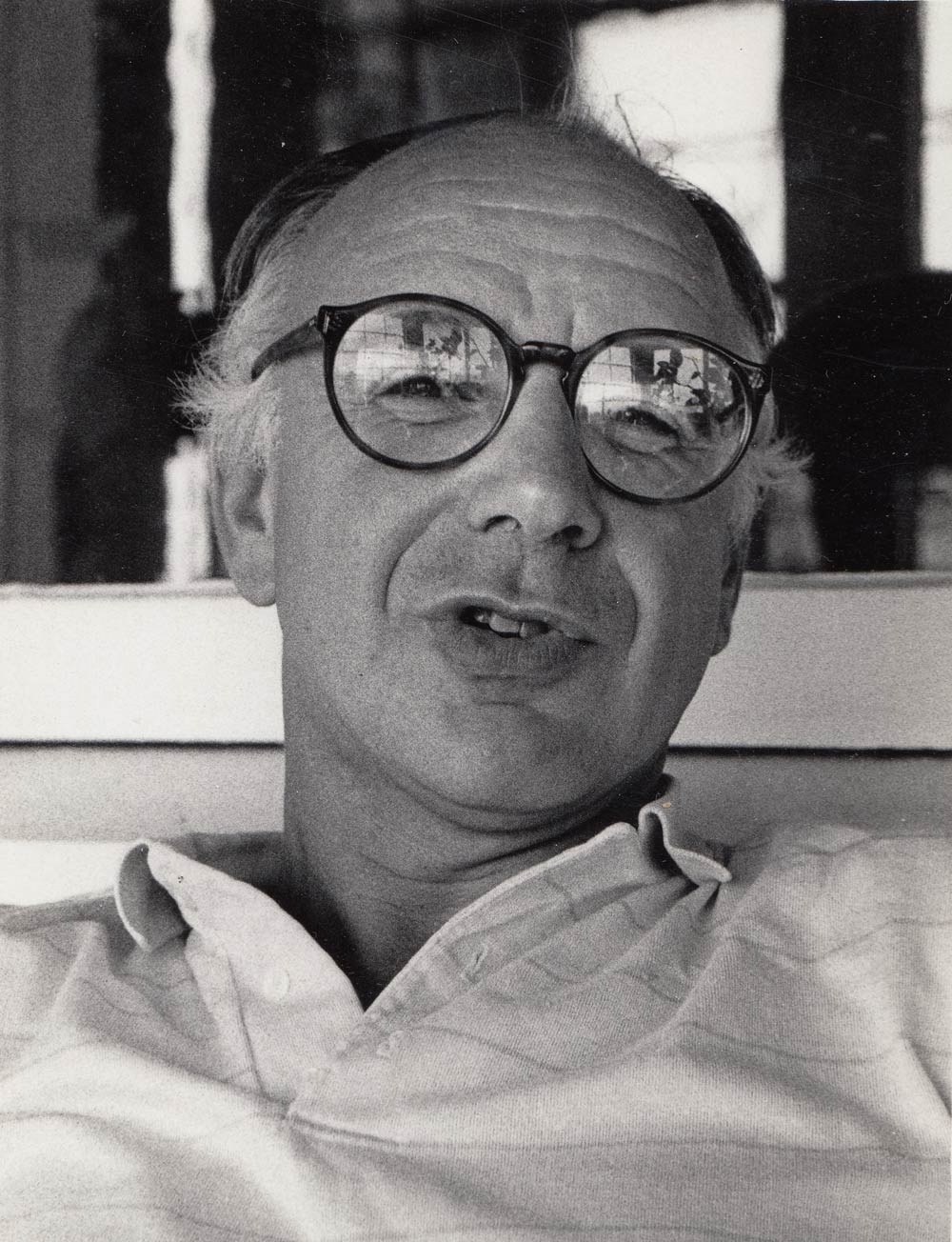
That desperation would prove literary gold. Published in 1974, “The Death of the Detective” was a New York Times paperback bestseller that one Times reviewer called “remarkable for both its ambition and its accomplishment.” It was a finalist for a National Book Award in 1975.
Smith, an American novelist and poet and UNH faculty emeritus known for designing the department’s M.A.-in-Writing program (now the M.F.A.), passed away July 28, 2022, at the age of 86. He lived an interesting life of literature, travel, music and experiences — he worked as a mucker extending the Chicago subway, was married three times and resided for months at a time in Ireland, France, Portugal, Spain and Great Britain. He studied at Northwestern with poet John Crowe Ransom and lived for a time at the New Mexico home of poet Robert Creeley. At UNH he taught fiction writing and theory for 33 years and counted among his peers well-known writers like Donald Hall, Thomas Williams, John Yount and Theodore Weesner, the journalist and composition authority Donald Murray and U.S. poet laureate Charles Simic.
A quarter-century of positive change

That’s the message shared by Sustainability Institute founding director Tom Kelly at the institute’s 25th anniversary celebration, held to mark the progress in the vast field of sustainability that has been made to date.
“As we pivot into the next 25 years and we think about where we’ll be in 2047, we have our work cut out for us,” Kelly told the crowd that had gathered on DeMerritt Hall lawn to enjoy local food and hear more about what sustainability means at UNH.
“Fortunately, we have a new generation of activists, demanding and driving change even in the face of active resistance by powerful political and economic actors.”
UNH has long lived out the belief that sustainability is about much more than being environmentally friendly. “We follow the United Nations’ 17 Sustainable Development Goals that there is no true sustainability without equity — that ecologic health is inextricably linked to human well-being and vice versa,” explains Fiona Wilson, deputy chief sustainability officer and director of the Sustainability Institute. “A sustainable world is also an equitable and just world, so sustainability really puts front and center access to education, basic healthcare for everyone and reduced inequalities of all kinds.”
Turning Trash Into Treasures
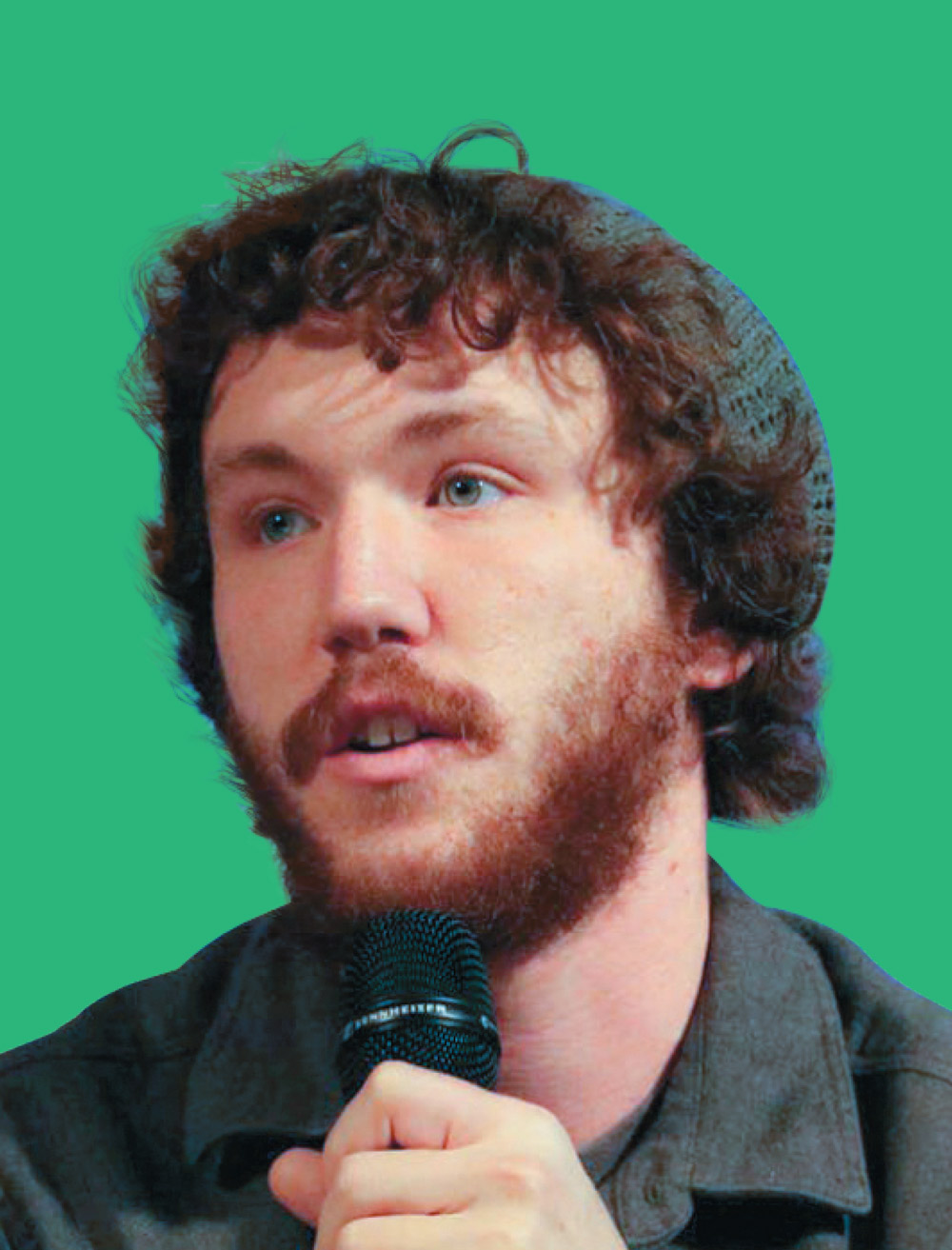
As an undergraduate, Alex Freid ’13 was saddened to see the waste that accumulated near the Dumpsters outside dorms and apartments on campus at the end of each semester. Not the bags of rubbish, but the still-usable couches and other pieces of furniture students were discarding.
He created a way to make better use of those discarded goods, and now, 10 years later, has grown his UNH project into a national organization.
Freid, who graduated with degrees in political science and philosophy, was named the 2022 UNH Social Innovator of the Year — 10 years after he won first place in the student track at the inaugural Social Venture Innovation Challenge.
Challenges tackled
An edible supplement made from seaweed to reduce methane production in cows, a device that can detect the presence of date rape drugs in drinks and a process to produce renewable jet fuel were some of the student-generated entrepreneurial ideas that took center stage at UNH’s annual NH Social Venture Innovation Challenge (SVIC) on Dec. 1.
Ten awards were given out in a combination of judge- and audience-choice categories, each of which carries a cash prize, as students presented their ideas on how to solve some of the most pressing sustainability problems facing society at the state, national or global level.
A sampling of winning ideas:
CRRS biofuel is a company aimed at outsourcing oyster mushrooms to produce a more sustainable transportation fuel.
The New Hampshire Aquaponic Initiative is a proposed project to implement aquaponics — the process of raising fish and organic vegetables in tandem — at the state’s fish hatcheries.
Coweed is an aquaculture venture that will produce a bovine-edible supplement made from THM-rich seaweed, which will reduce methane production in cows.
Closed Loop creates a more sustainable future for the aerospace industry by collecting carbon dioxide emissions to produce renewable jet fuel.
Halo is a date rape drug detector in the form of a smart ring that can sample the drink and log the data collected.
Enersave utilizes smart home technologies to lower residential energy demand during peak load events, reducing emission and saving ratepayers money.
The EV SCOUP is a reinvention of the sunshade that provides a supplementary charge to vehicles by utilizing the rays that hit it instead of reflecting them, all while keeping the vehicle cool.
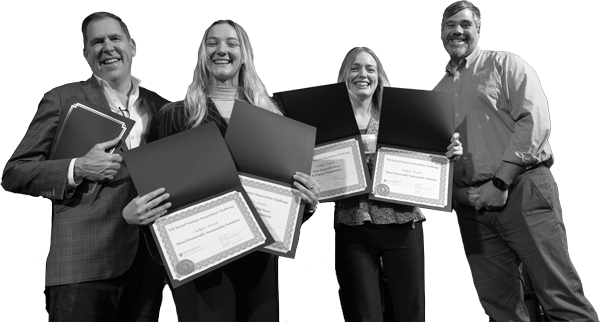
From left, SVIC judge and UNH Sustainability Advisory Board member Ed Farrington ’93 of Impax Asset Management, Alice House ’24, Anna Gombas ’23 and SVIC judge Doug Smith ’04 of Kennebunk Savings Bank


FROM YOU
Alumni.editor@unh.edu
Postal Mail
UNH Magazine
Attn: Michelle Morrissey, Editor-in-Chief
9 Edgewood Road
Durham, NH 03824
Phone
(603) 862-0527
Who Got You Through?
Be sure to share your story by April 10!


Operation Hat Trick
Michelle Morrissey

portrait by
Perry Smith
But she wasn’t prepared to see the extent of injuries in the young men and women there. And the mental and emotional wounds, while invisible, were still evident during the visit.
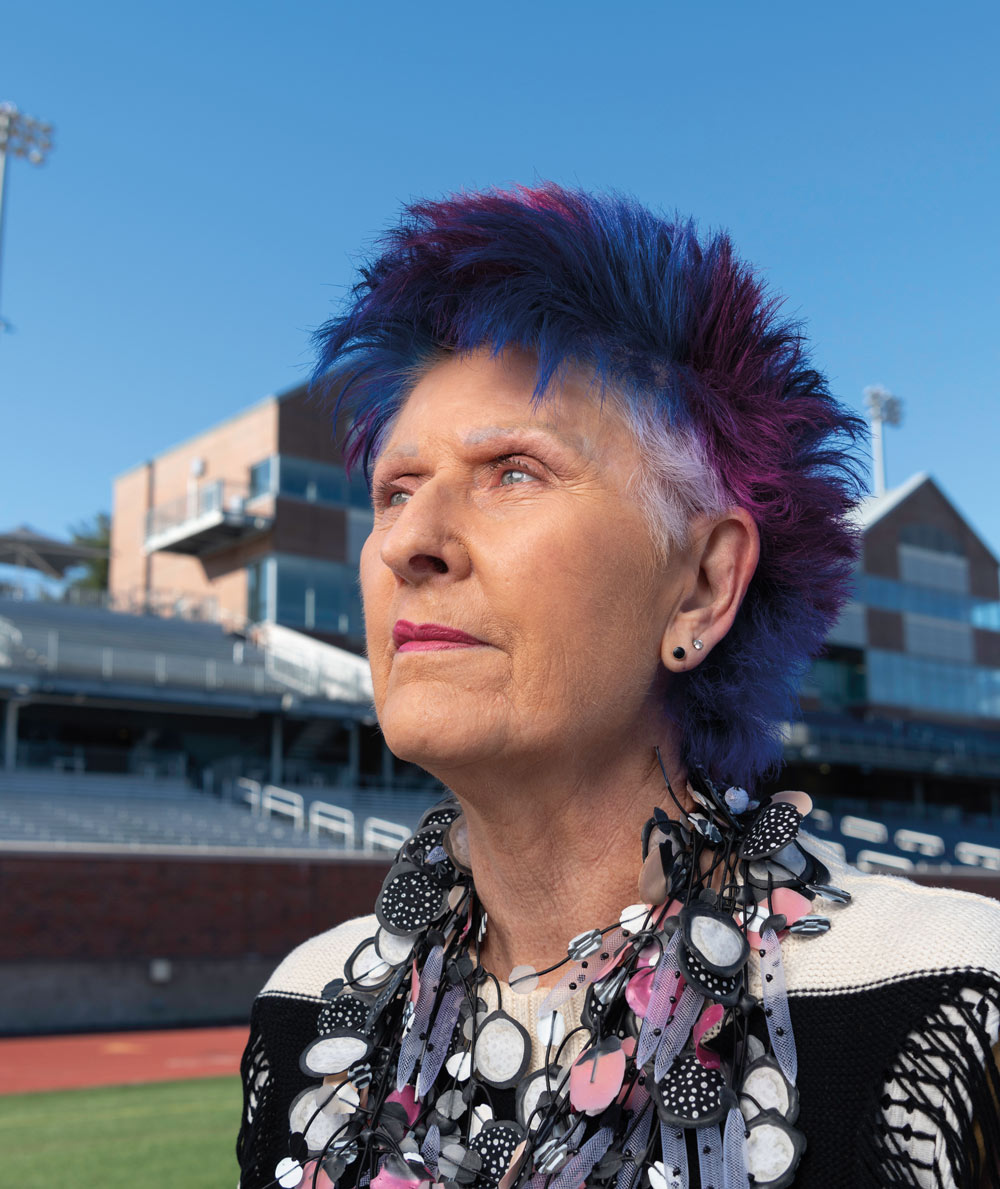
Demetrius A. Phofolos ’22, a neuroscience and behavior major, conducts research for a SURF grant through the Hamel Center for Undergraduate Research in the salt marshes in Rowley, Massachusetts.
Research Rewind
Michelle Morrissey
Photos by
Scott Ripley and Jeremy Gasowski
Hamel Center for Undergraduate Research celebrates more than three decades of student inquiry
As college undergrads, UNH students have the opportunity to conduct meaningful research that could lead to curative treatments for cancer, provide real-world solutions to the climate crisis or help create common understanding of the political dynamics that play a part in global pandemics.
Yes, that’s undergraduates. While many think such high-level research might be reserved for those pursuing master’s or doctoral degrees, at UNH it’s been a regular part of the freshman-through-senior-year experience for more than three decades, through the Hamel Center for Undergraduate Research (HCUR).
Founded in 1987 as the Undergraduate Research Opportunities Program (UROP), the center provides fellowships and grants to students who, working with a faculty mentor, design and carry out research, as well as scholarly or creative projects. They also take part in the Undergraduate Research Conference (URC), which features more than 20 events each April and May in a campus-wide showcase for undergraduate scholarship. Open to the public, the URC invites attendees to peruse a roomful of research, with students presenting their findings and how they reached their conclusions.
Research Rewind
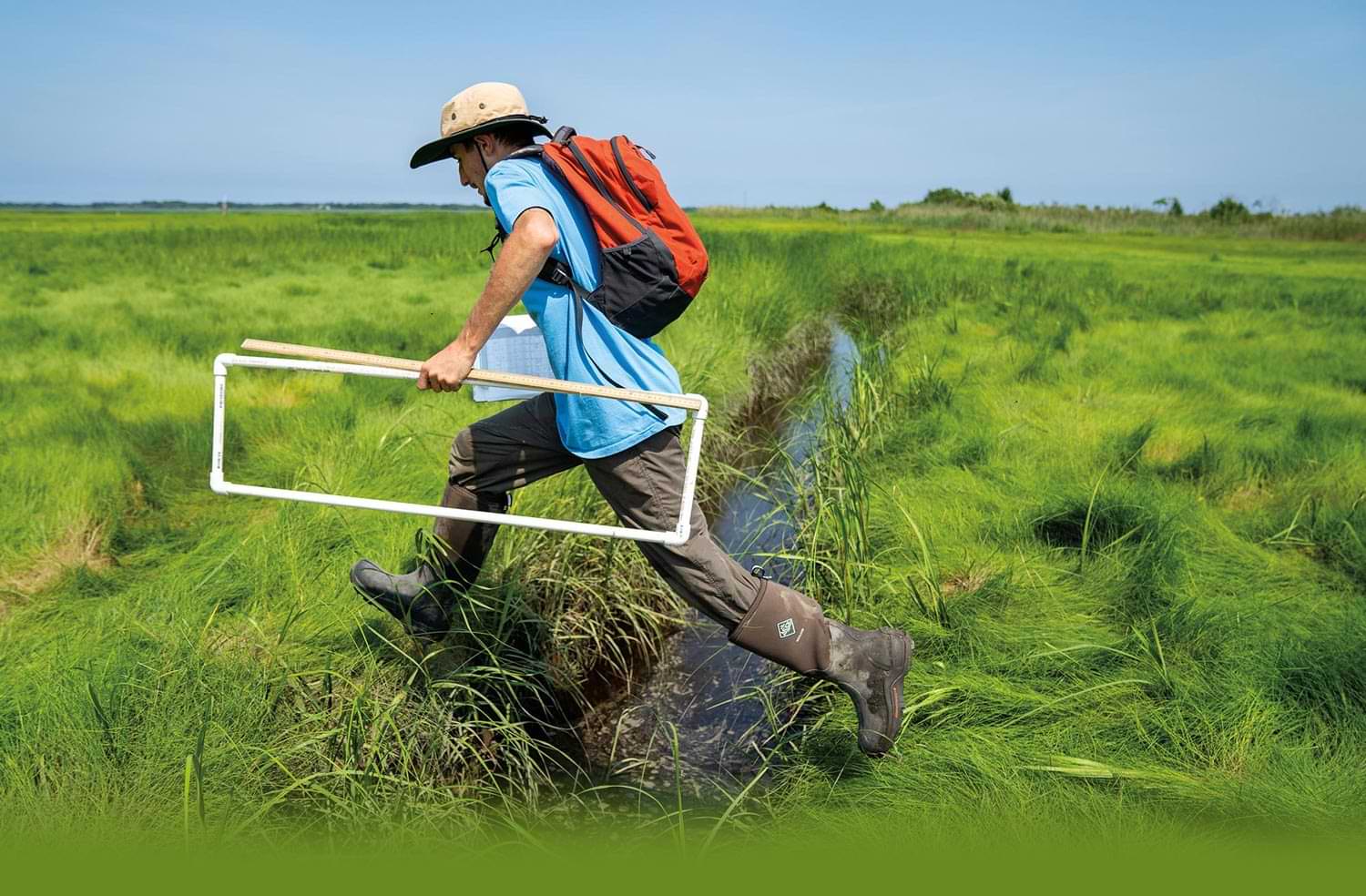
Demetrius A. Phofolos ’22, a neuroscience and behavior major, conducts research for a SURF grant through the Hamel Center for Undergraduate Research in the salt marshes in Rowley, Massachusetts.
Research Rewind


Hamel Center for Undergraduate Research celebrates more than three decades of student inquiry
Michelle Morrissey
Photos by
Scott Ripley and Jeremy Gasowski
As college undergrads, UNH students have the opportunity to conduct meaningful research that could lead to curative treatments for cancer, provide real-world solutions to the climate crisis or help create common understanding of the political dynamics that play a part in global pandemics.
Yes, that’s undergraduates. While many think such high-level research might be reserved for those pursuing master’s or doctoral degrees, at UNH it’s been a regular part of the freshman-through-senior-year experience for more than three decades, through the Hamel Center for Undergraduate Research (HCUR).
Founded in 1987 as the Undergraduate Research Opportunities Program (UROP), the center provides fellowships and grants to students who, working with a faculty mentor, design and carry out research, as well as scholarly or creative projects. They also take part in the Undergraduate Research Conference (URC), which features more than 20 events each April and May in a campus-wide showcase for undergraduate scholarship. Open to the public, the URC invites attendees to peruse a roomful of research, with students presenting their findings and how they reached their conclusions.
take learning beyond
the classroom with
entrepreneurial curiosity.
The Age of Exploration

The Age of Exploration


But then, there are fish guts: tails, heads and other pungent parts piled high in plastic barrels in the bait room of the Yankee Fishermen’s Cooperative in Seabrook. It’s a key stop on a tour of the member-owner co-op, which works closely with UNH Sea Grant on fisheries and ocean research.
The students’ universal reaction: “Ewww …”
But the scholars soon learn that a lobster boat can’t leave port without a ready supply of bait, ice and fuel — along with a costly and sophisticated array of traps, special ropes, safety equipment and other gear that must comply with an increasingly complex web of state and federal regulations. By the time the students head back to Durham, the price of lobster will seem like a bargain.
Searching for Answers

But the 63-year-old mother and grandmother was never seen again. For more than four decades, her family never knew what happened to her. She wouldn’t have walked out on her life; her family recalled her being in good spirits that rainy July day. Was she the victim of a crime in this quiet northern New Hampshire town where she had grown up?
The questions lingered until, some 43 years later and 12 feet down into the Connecticut River, a UNH professor and her students were part of the team that finally solved the mystery and brought peace to Leeman’s family.

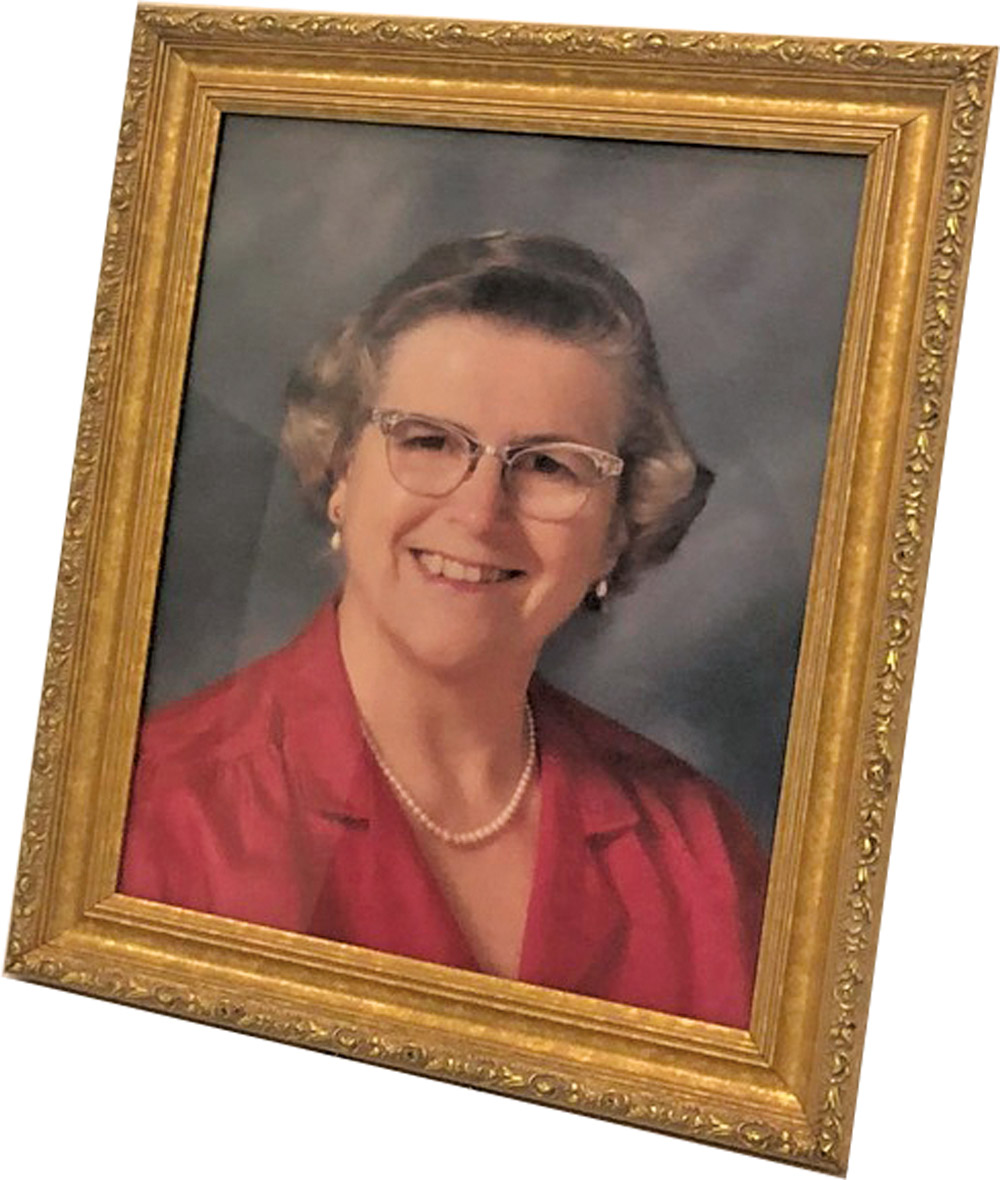
Lasting Impact

Her husband of more than 50 years says teaching the next generation of nurses was his wife’s passion.
“Ann had accumulated valuable knowledge, and her aim was to pass it along. A student puts trust in a teacher who is always straightforward and well educated, and that was Ann,” says Roland “Sam” Kelley of his wife, who passed away in March 2020 at the age of 85. “She gravitated to nursing and teaching simply because she loved the work.”
To honor her legacy at UNH, and for the generations of nurses now working near and far on the frontlines of medicine, two scholarships have been created in Ann’s name: the Ann M. Kelley Scholarship for Nursing and the Ann Kelley Great Nurses Scholarship. Both were results of Ann’s wishes to continue to support future generations of nurses.
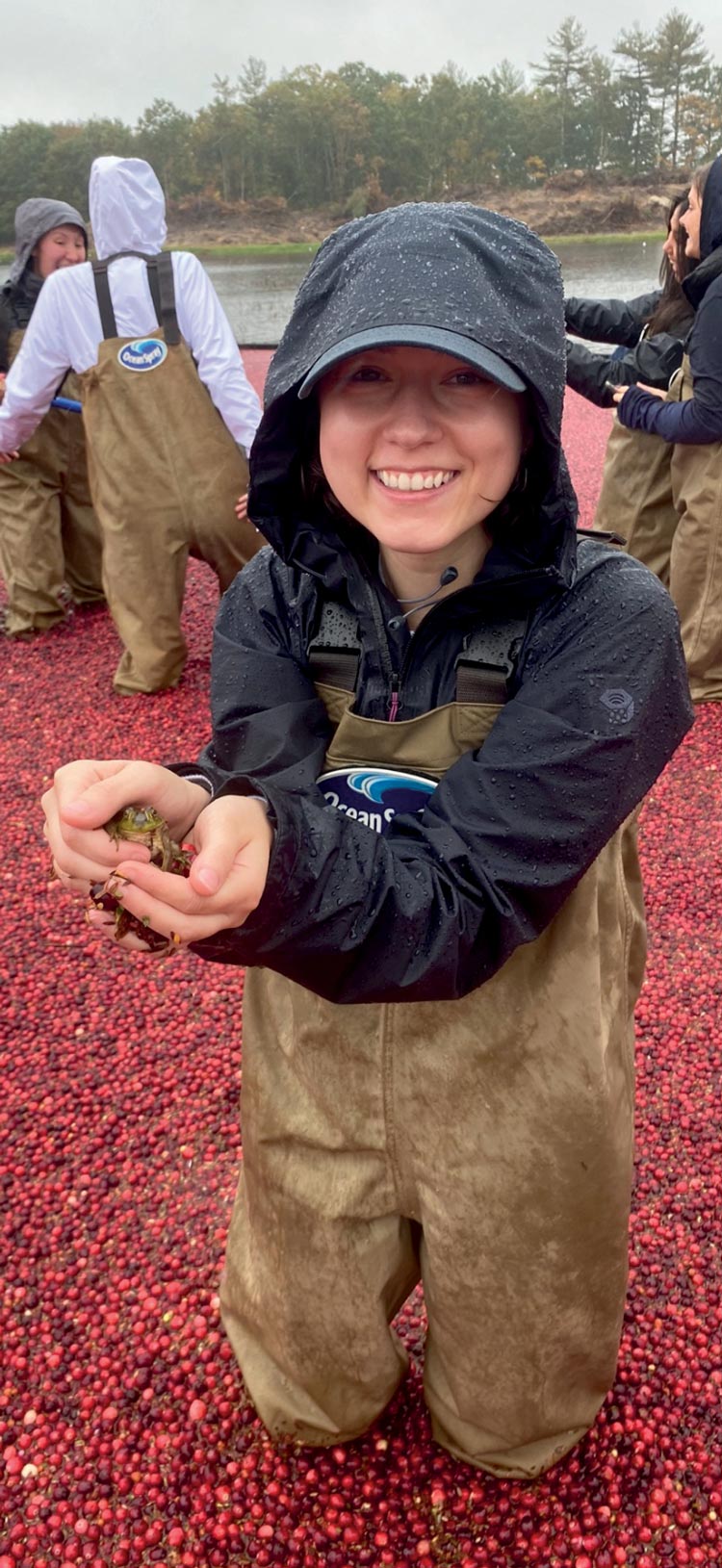
Bogs, Berries and Business
Students chatted with Rod Serres, senior manager of agricultural science for the company, during a tour of a cranberry bog, Iain Ward ’97, an Ocean Spray cranberry grower, and Alice Monteiro, human resources manager, who discussed the company’s internship program, with opportunities in the areas of data visualization, food regulatory affairs or operations/financial planning.
Emily Alberigo ’24, business administration/marketing major, was impressed with the collaborative feel and shared mission of the business, which operates on a co-op model.
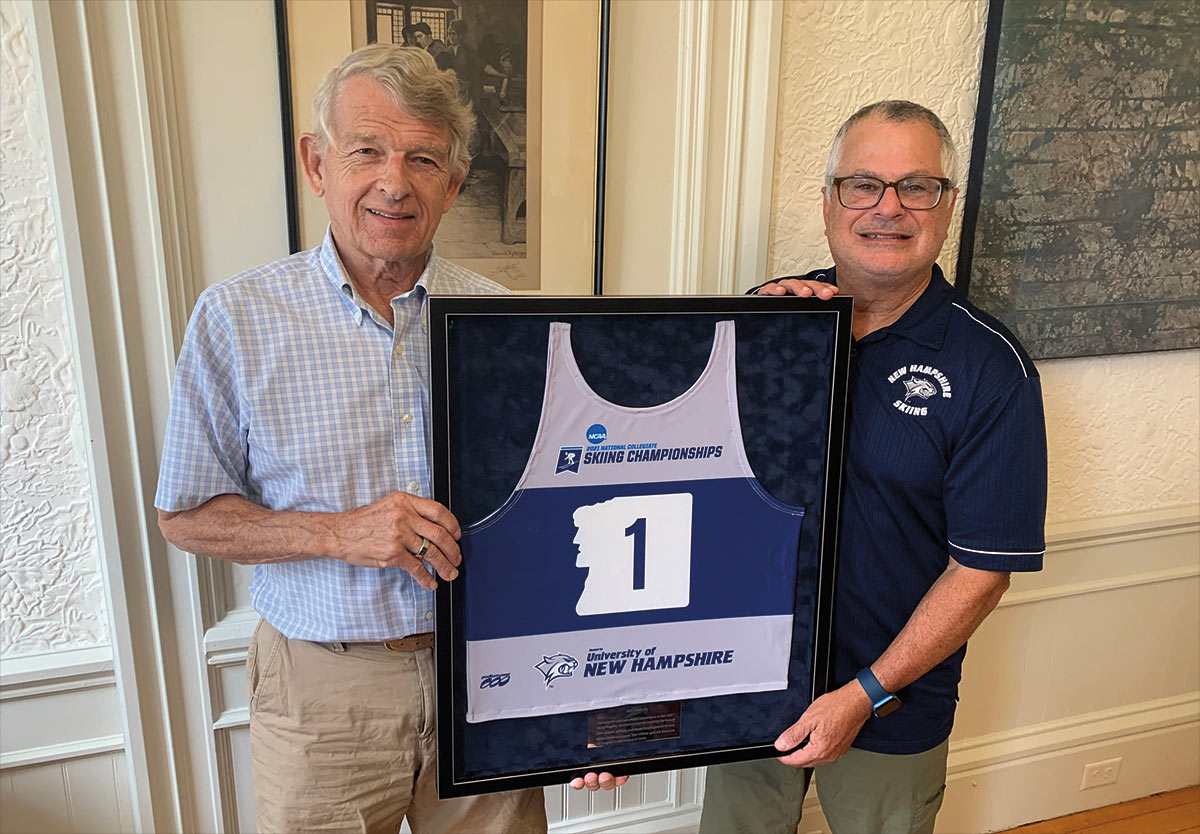
Former ski captain pledges $2M to UNH team
Putnam will contribute $1 million to the endowment, which funds scholarships, coaches’ salaries, training camps and equipment for the team, and $1 million to a new facility that will have locker rooms and lounges for the men’s and women’s alpine and Nordic ski teams at the Field House as well as a waxing room and storage for equipment.
“I’ve enjoyed skiing my entire life,” said Putnam. “Skiing is New Hampshire’s sport, and I feel the state university should have a strong skiing program. That’s why I’ve always supported the team and why I’m making this investment in UNH skiing.”
Putnam skied for UNH in the mid-1960s and was captain of the freshman ski team before leaving the university to join the U.S. Army.
Support for next generation of engineers
He subsequently became a sought-after resource for work involving preservation and repurposing older structures for modern uses. Examples include the Simon Pearce Mill in Vermont, preserving the building that houses the Portsmouth Athenaeum and extensive work with developers as they transformed Manchester’s Millyard into a bustling multi-use community.
Now, a new scholarship in his name will help engineering students chart their own paths to success. The first recipient, Timothy Barrett ’24 of Hudson, is a mechanical engineering major who hopes to work in renewable energy.
Alumni News
To the Stars
But when Poteet looks up at the sky these days, he sees it with different eyes.
In a short time, he will rocket into space and head closer to the moon than anyone has been since NASA’s Apollo missions of the 1970s. He is serving as mission pilot for Polaris Dawn, guiding SpaceX’s Falcon 9 rocket on a five-day mission.

Stephanie Bramlett
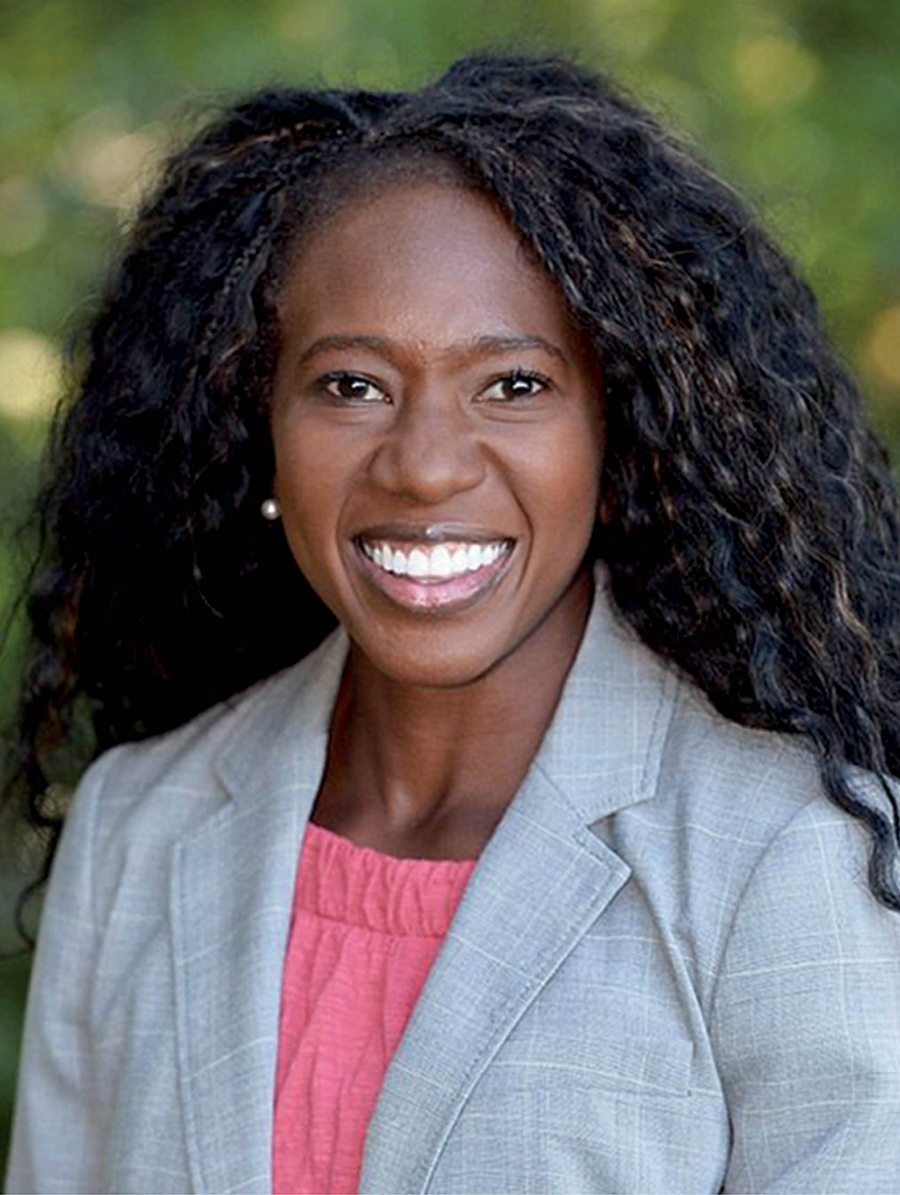
As the storm’s victims scrambled to find food and shelter, Bramlett wondered why the media called some “looters” while others were characterized as “scrappy survivors.” Why did some neighborhoods largely weather the storm while others were washed away? And how did she wind up in a dorm room asking these questions when so many others didn’t?
“I was thinking about the ways people were represented, who was given more grace than others,” Bramlett ’06G ’11G remembers. She had just arrived at UNH to begin a master’s program in political science, but Hurricane Katrina prompted her to take on an additional field of inquiry. “I kept asking, ‘Who’s studying this?’ and a few months later I applied to the sociology program.”
Lights, Camera, Action
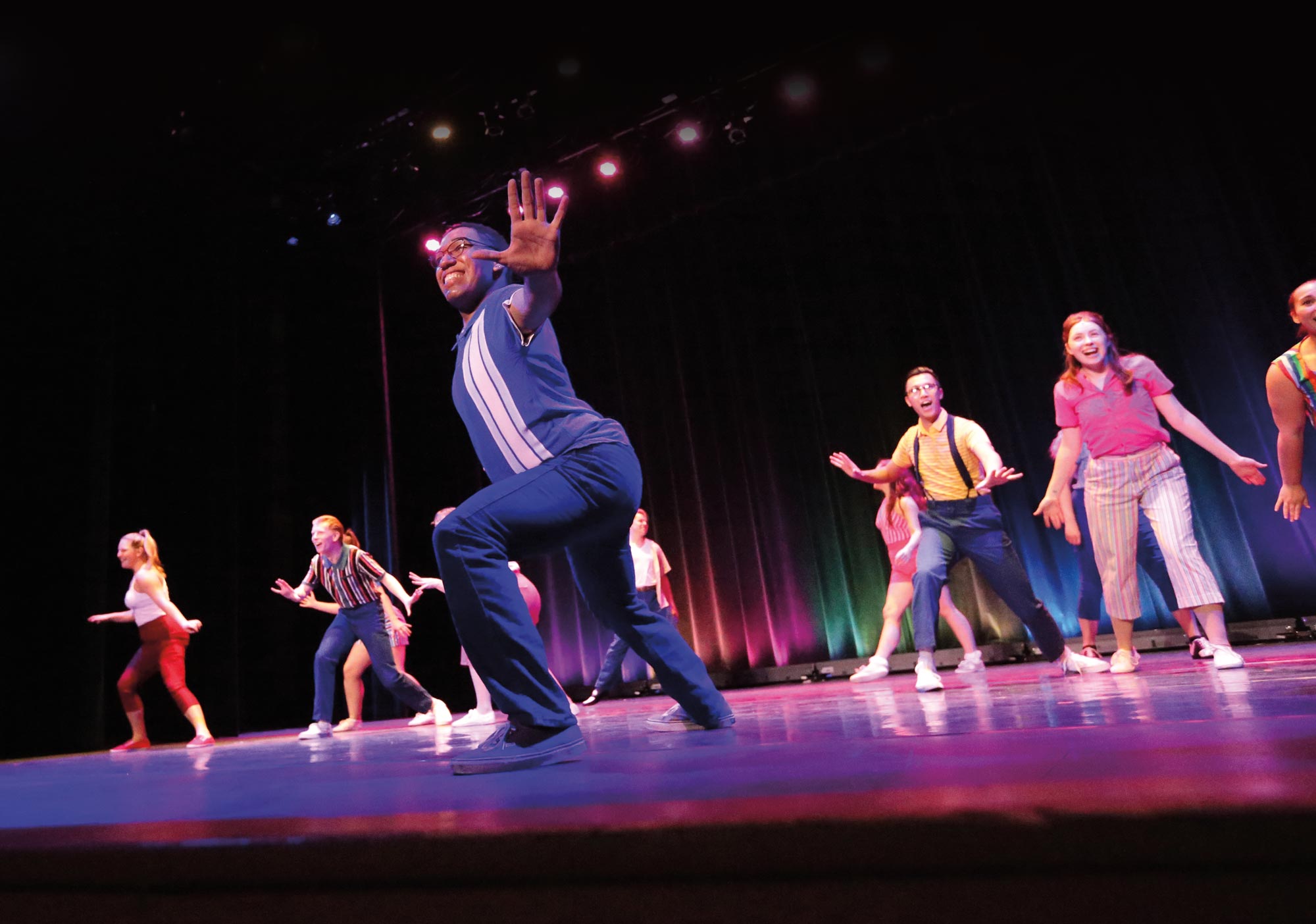
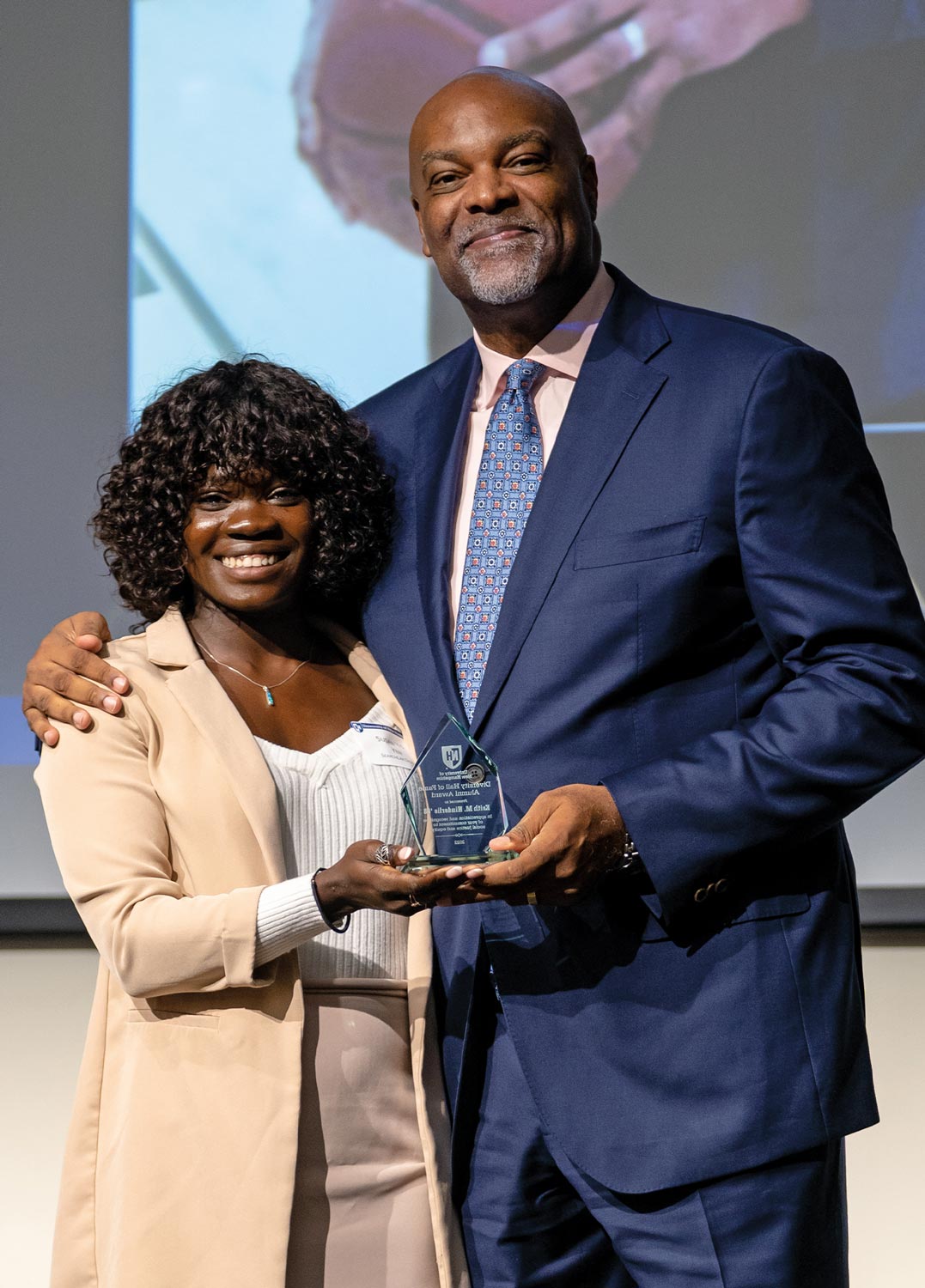
Susan Yen ’15, Alumni board member, with Keith Hinderlie ’88.
PHOTOGRAPHY BY JAKE KITTERMAN ’23
Well-deserved honors
Diversity Hall of Fame awards recognize alumni accomplishments, commitment to social justice
“You are doing more than overcoming. You are excelling.” That’s how one of the eight inductees into the UNH Diversity Hall of Fame last fall was lauded. Another recipient was complimented for his combination of grit and grace, and still another applauded for ensuring that those with the greatest needs no longer get the least amount of help.
Storyteller
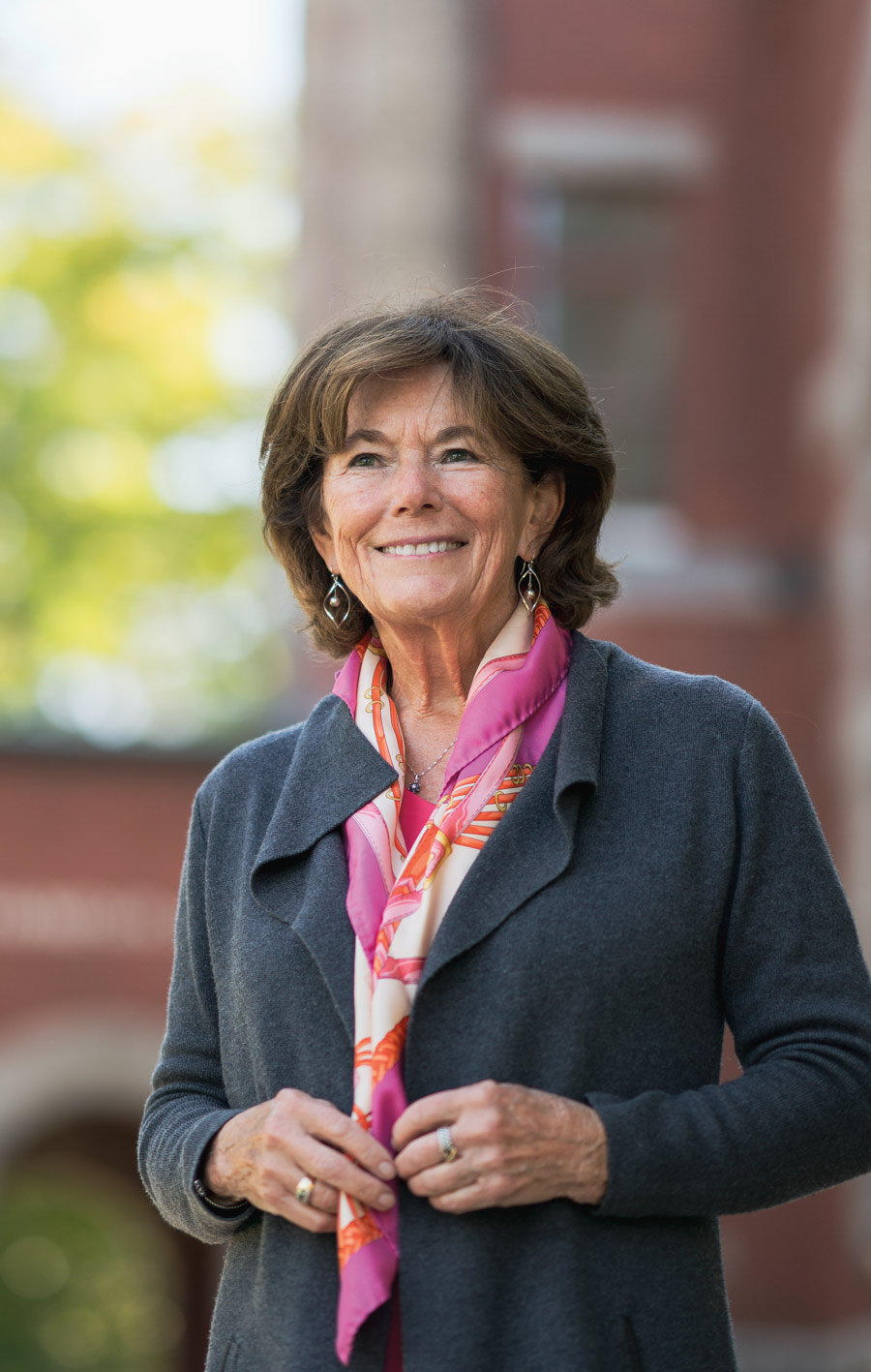
So when she, like so many, found herself with time on her hands and not much to do during the COVID lockdown in 2020, she didn’t learn how to make sourdough bread, or adopt a puppy, or take up a new hobby. Instead she did what came most naturally to her — she told a story. But this time, the story she was telling would be her own: She decided the lockdown was a good time to write the memoir she had been thinking about for many years, but never had the time to sit down and start.
“I wasn’t trying to write a book; I just wrote stories as they came to mind,” she says. “I wrote about five hours a day for six or seven weeks, and I was done.” She says harder than writing the book was finding a publisher.
The final product is “Every Life a Story: Natalie Jacobson Reporting,” published last summer (available on Amazon and Audible). In the book, Jacobson writes about her professional life as a groundbreaking broadcast journalist in Boston for nearly 40 years, but also shares in-depth stories of her upbringing in a Serbian immigrant family, her years as a young coed at UNH and building her own family, which includes now-grown children and stepchildren.
Dane DiLiegro
Admittedly, not much. But they are all connected if you are Dane DiLiegro ’11 and you’re on a career journey that has taken you from New England to Italy to Hollywood in a relatively short few years.
DiLiegro became a household name, if not a recognizable face, with last summer’s “Prey,” a prequel to the Predator series of action-horror movies first made famous by Arnold Schwarzenegger. DiLiegro played the Predator — a human-hunting, highly evolved alien who lands on Earth. The film was a hit with critics and audiences for its action sequences, its casting of Indigenous actors and the powerful cast performances, including DiLiegro’s.
“I just feel like I was super fortunate that all the pistons fired together and at the right time,” DiLiegro told UNH Magazine during an interview this summer amid the buzz about the movie.
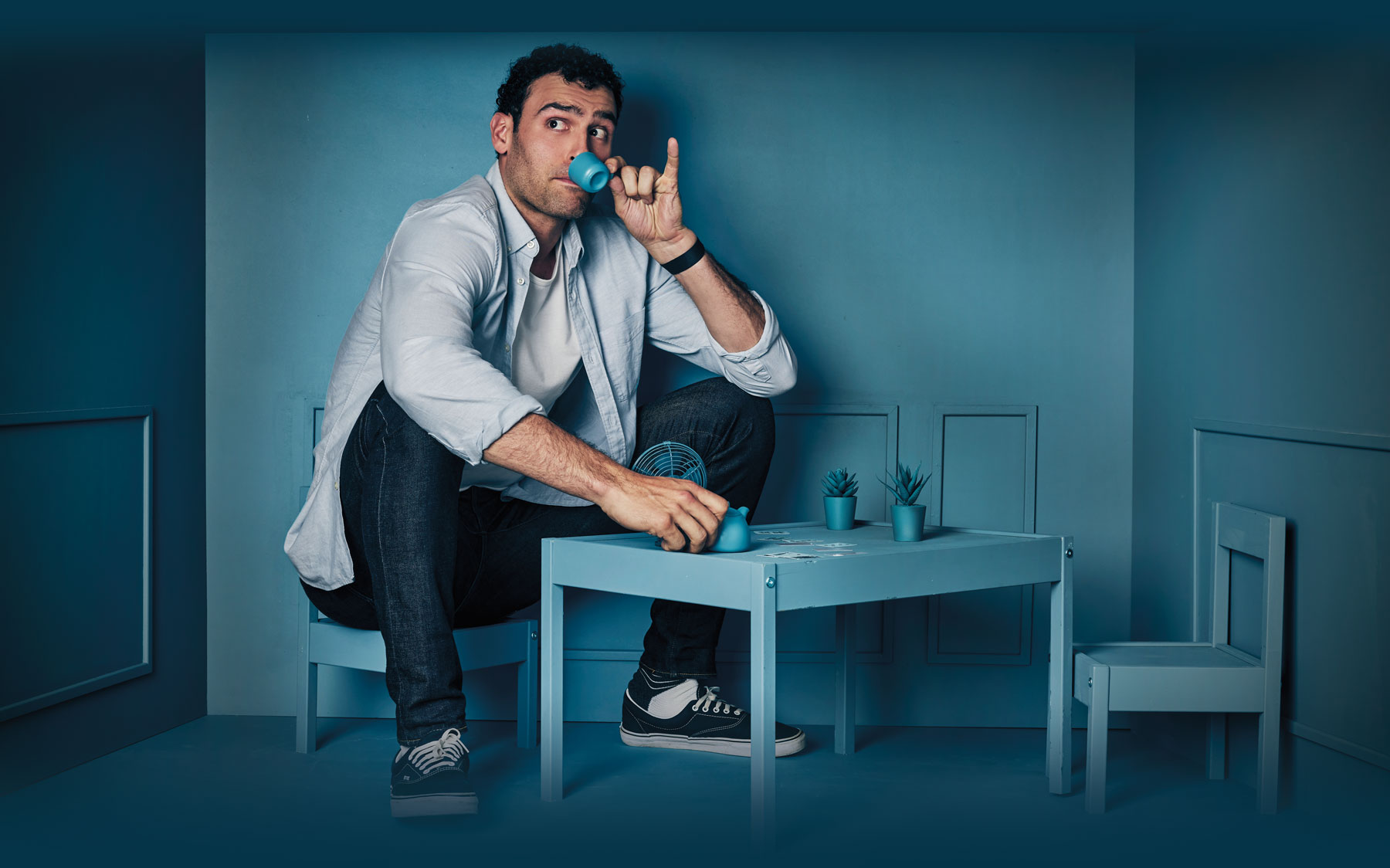
Class Notes
1949
1952
Vicki Burns ’74, daughter of Marilyn Follansbee from the class of 1952 writes that Marilyn had a great 90th birthday in June 2021, but had a stroke two months later, and is still working on regaining her speech. She is living at Langdon Place of Dover and enjoys reading emails at hmf2@comcast.net. She participated in the UNH summer program for speech PT students. Well wishes for a good recovery, Marilyn. Marilyn C. Waris Pike, also known as Pinky, has passed away, we heard from her son Dana Pike of Utah. “She majored in occupational therapy, and I often heard her say, ‘Not a day goes by when I don’t use something I learned in my OT program!’” says Dana. “Two weeks after her graduation, she married my father, Ronald M. Pike ’49. He passed away in 2019.” Condolences, Dana.
Norris ‘Brownie’ Browne
Browne ’55 would drive up from his residence in Wilton, Conn., on Friday and make the rounds: stopping by the Field House, visiting the Jerry Azumah Performance Center to say hello, then heading to the field to check in on practice before he landed at Three Chimneys — which would then become UNH Football Central for the weekend.
Game after game, year after year, Browne’s friends and family members gathered to talk about their beloved Wildcats, watch their beloved Wildcats (Norris preferred to walk the sidelines during the game) and then talk more about their beloved Wildcats after the game.
“I’ve got to say for years at every Homecoming, he’s been like the ringleader for a gang of us, a gang of us that has been shrinking like crazy,” said Len Willey ’55, a longtime UNH friend. “It was Brownie that got us going, would tell us what we were going to do. He was a fun guy, an intelligent guy and he loved UNH, that’s for sure. … We are sure going to miss him.”
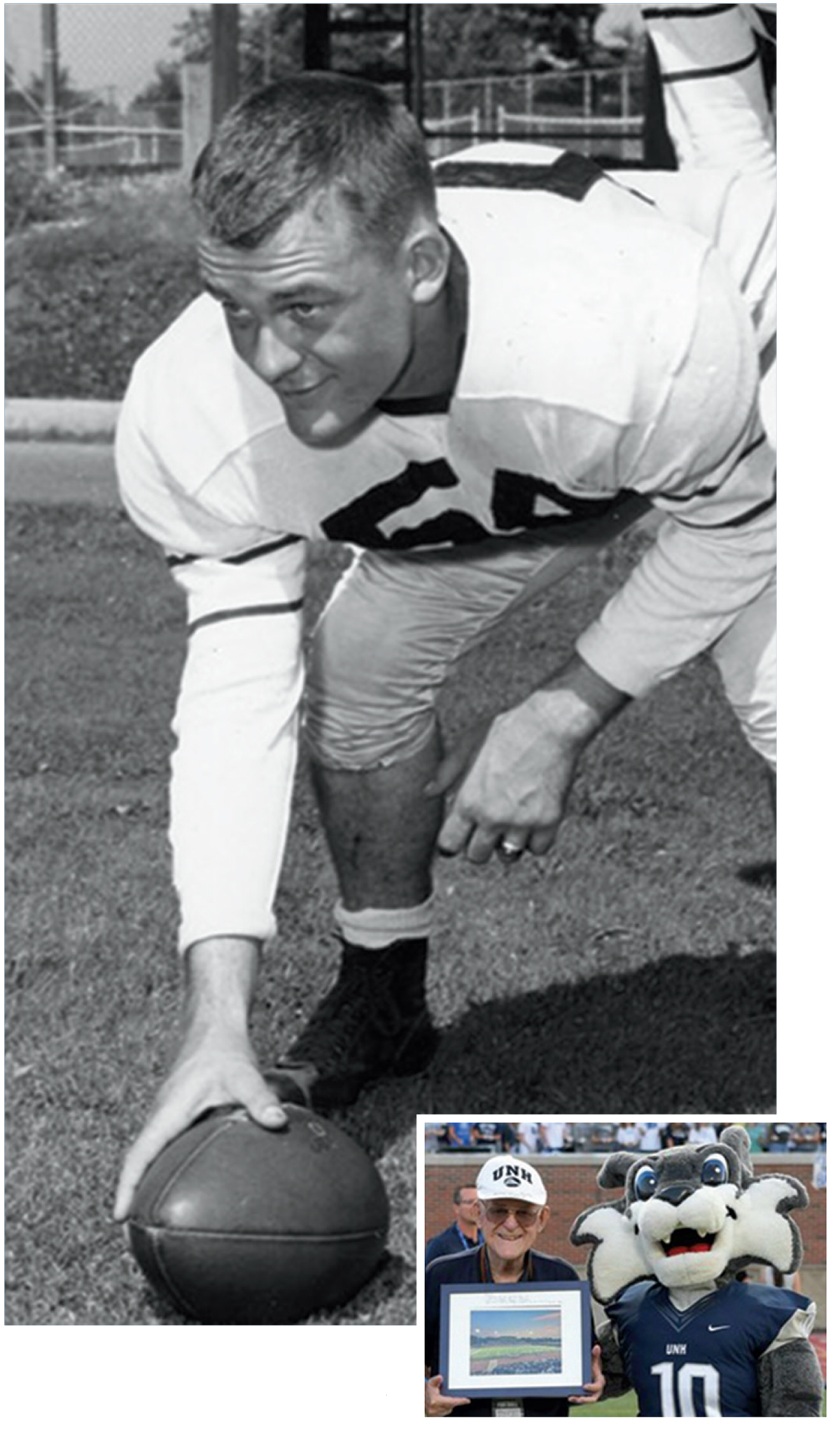
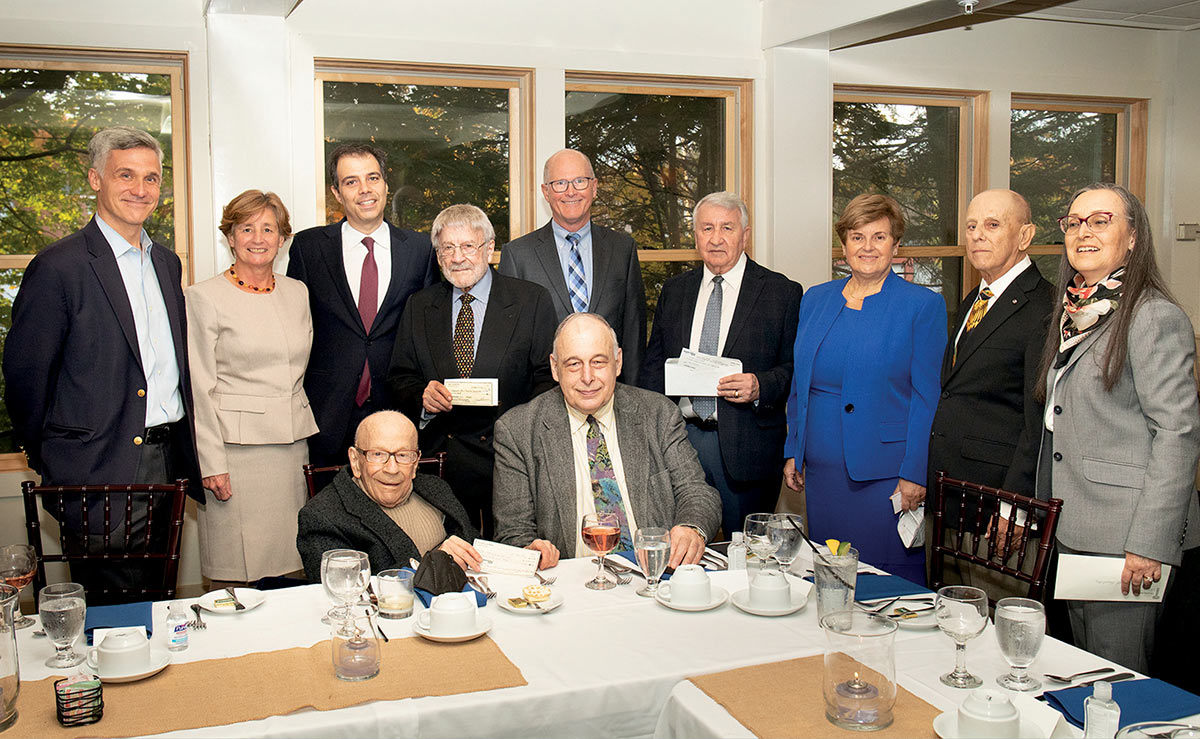
John C. Rouman
“From the moment he was aware of who he was as a child of Greek immigrant parents, he took a great interest in learning about Greek life, ancient Greek history and the glory that once was Greece,” says his brother, Dr. James Rouman. Having learned to read and write in Greek at an early age, John quickly demonstrated that he was born to become a teacher. “He organized a Greek school to which he assembled all the neighborhood kids and tried to teach them Greek, when at the time he was no more than 11 or 12,” says James. “Even as a child, he was proud of who he was and was determined to convey his knowledge of Greek to others.”
Bright Shall Thy Mem’ry Be: In Memoriam
- Rose T. Antosiewicz
Faculty Emeritus
September 13, 2022 - Thomas R. Barstow
Faculty Emeritus
July 25, 2022 - Martha B. Burton
Former Staff Member
April 17, 2022 - Michaele L. Canfield
Former Staff Member
May 31, 2022
- Spiro A. Anastos ’49
September 29, 2022 - Roland M. Avery Jr. ’48
April 27, 2021 - Shirley Grant Berlind ’48
May 11, 2022 - Anne R. Wiesen Brown ’48
August 2, 2022
- James S. Allen ’61
May 8, 2022 - Robert E. Andrews ’61
June 3, 2022 - George J. Andrzejewski ’65G
September 4, 2022 - Russell A. Armstrong ’69 ’71G
July 12, 2022
- Clifford E. Bane ’73
May 4, 2022 - William R. Baran ’70
March 7, 2022 - Eleanor Healy Barnes ’73G
May 18, 2022 - Thomas M. Batch Jr. ’76
May 29, 2022
- Mary E. Hurd Aram ’82
April 20, 2022 - Jillian Harvey Asquith ’80
September 10, 2022 - Loretta G. Poole Buchanan ’82 ’88G
October 10, 2021 - Kirsten L. Lavery Butler ’85
June 21, 2022
- Stephen T. Allard ’97 ’98G
September 16, 2022 - William D. Bedor III ’90
June 30, 2022 - Kenneth E. Bell ’98G ’02PhD
May 16, 2022 - Dana A. Blake ’90
August 6, 2022
- Aimee M. Pike Aruda ’03
July 1, 2022 - Doreen J. Brado ’02
September 24, 2022 - Joshua J. Ciocco ’07 ’10G
October 4, 2022 - Pamela L. Danielson ’01
July 12, 2022
- Susan E. Barker ’14
September 29, 2022 - Nichole M. Zirpola Cavanaugh ’11
June 4, 2022 - John R. Coon ’12PhD
August 22, 2022 - Susan M. Wall Corcoran ’19G
September 16, 2022
My View
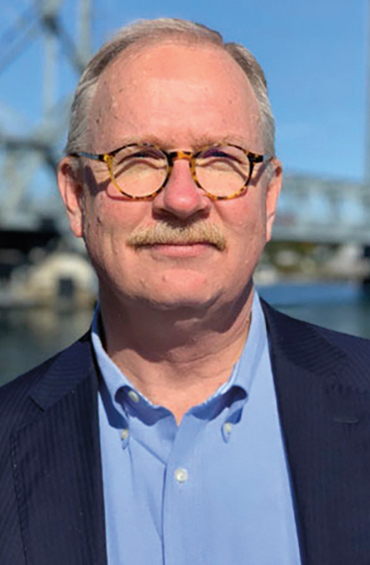
Dear Professor Schlesinger:
I’m Sorry
I graduated from UNH in 1982 and am 62 years of age, and I’m not too proud to say that I made a mistake by holding on to that grudge.
If you do the math, the grudge started my freshman year at UNH. I was a hotel admin major at WSBE (now Paul College). I was taking organizational behavior, and the professor was Phyllis Schlesinger. To be honest, I remember only one assignment that she gave us — because it shaped me. At the time that I’d completed the assignment and gotten comments back from her, my perspective was completely different, but we’ll get to that.
Learn more, page 20.

